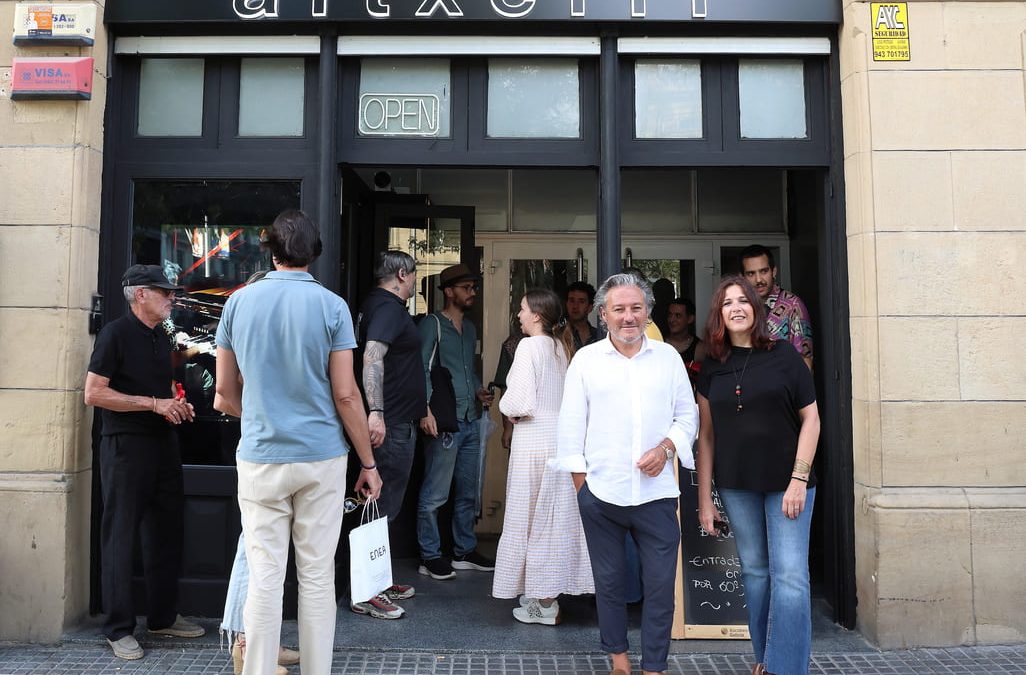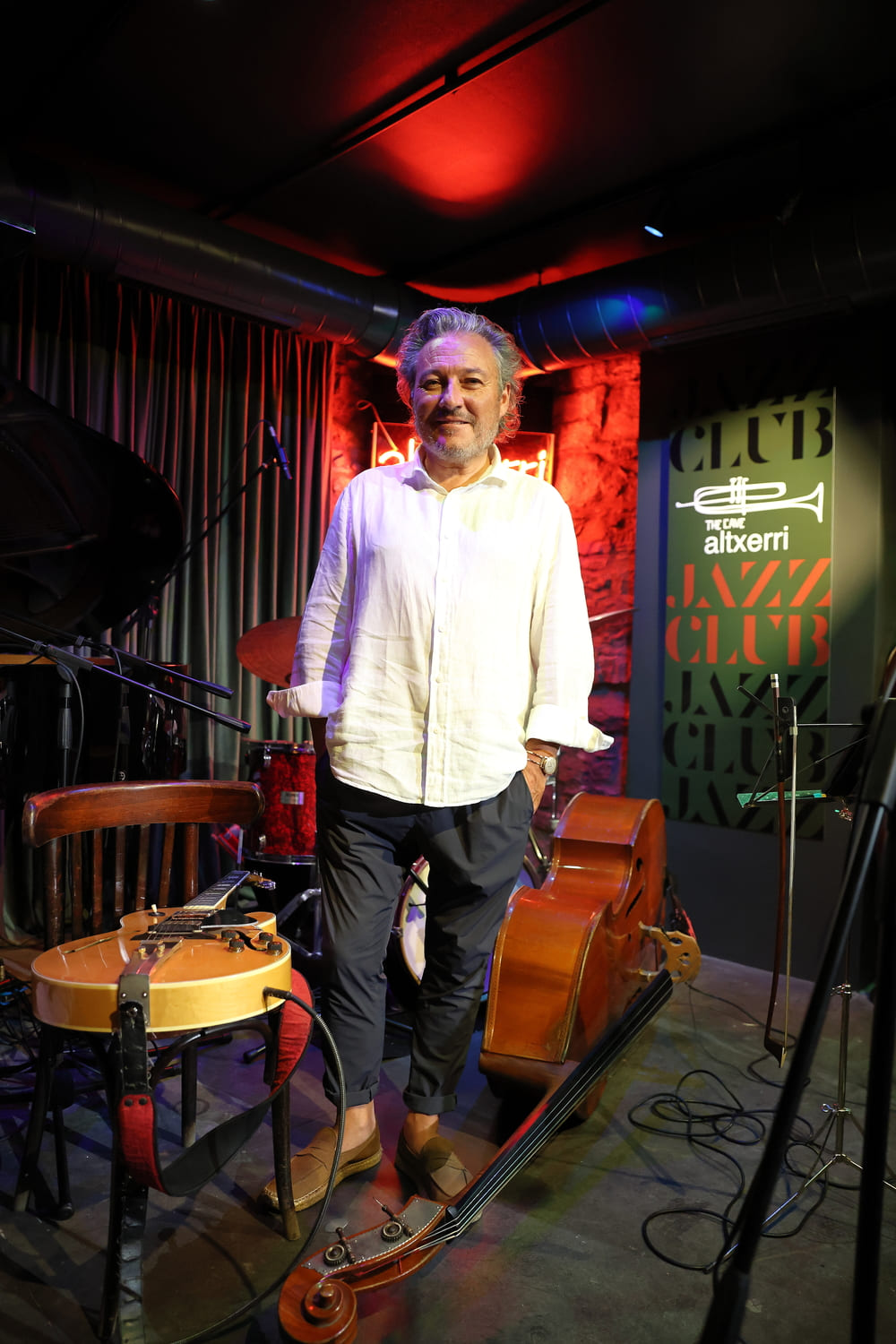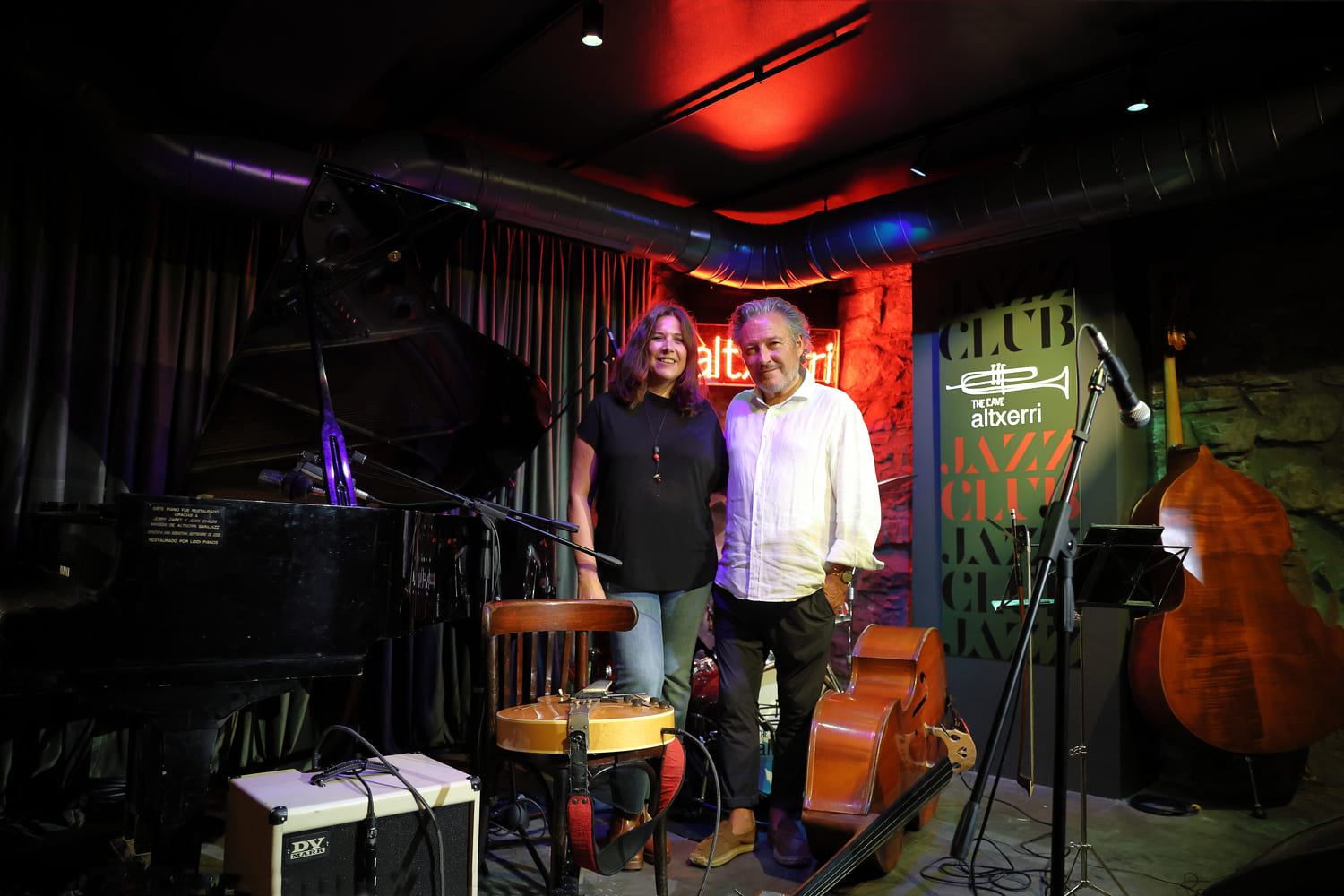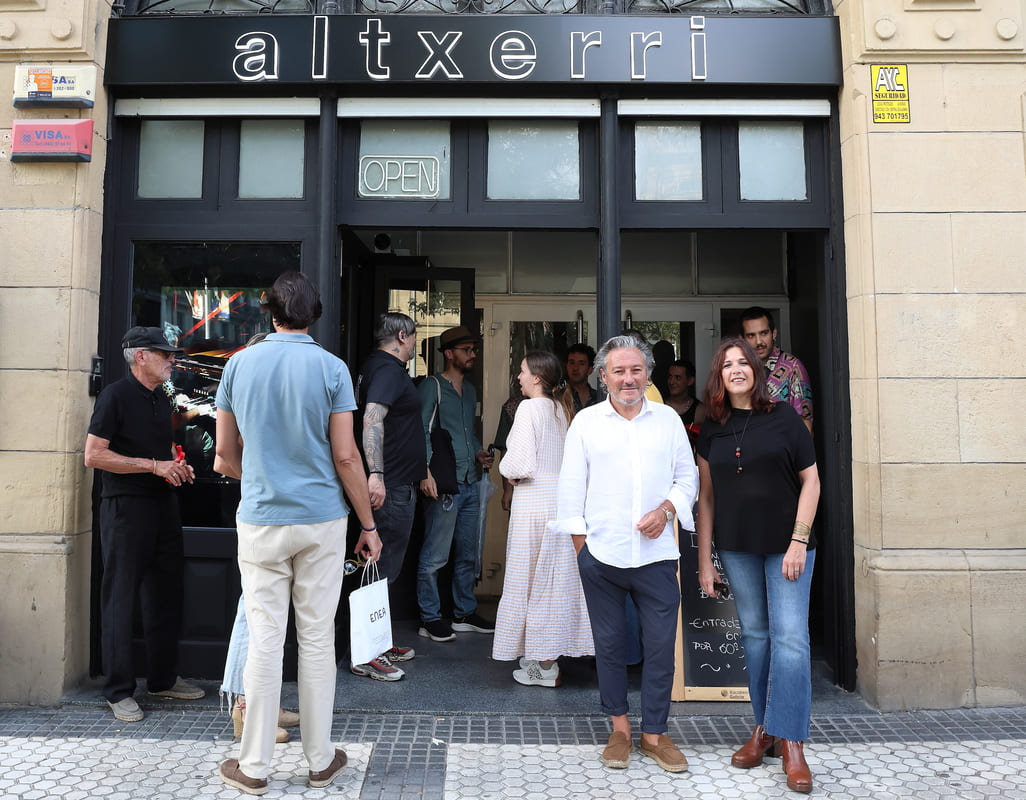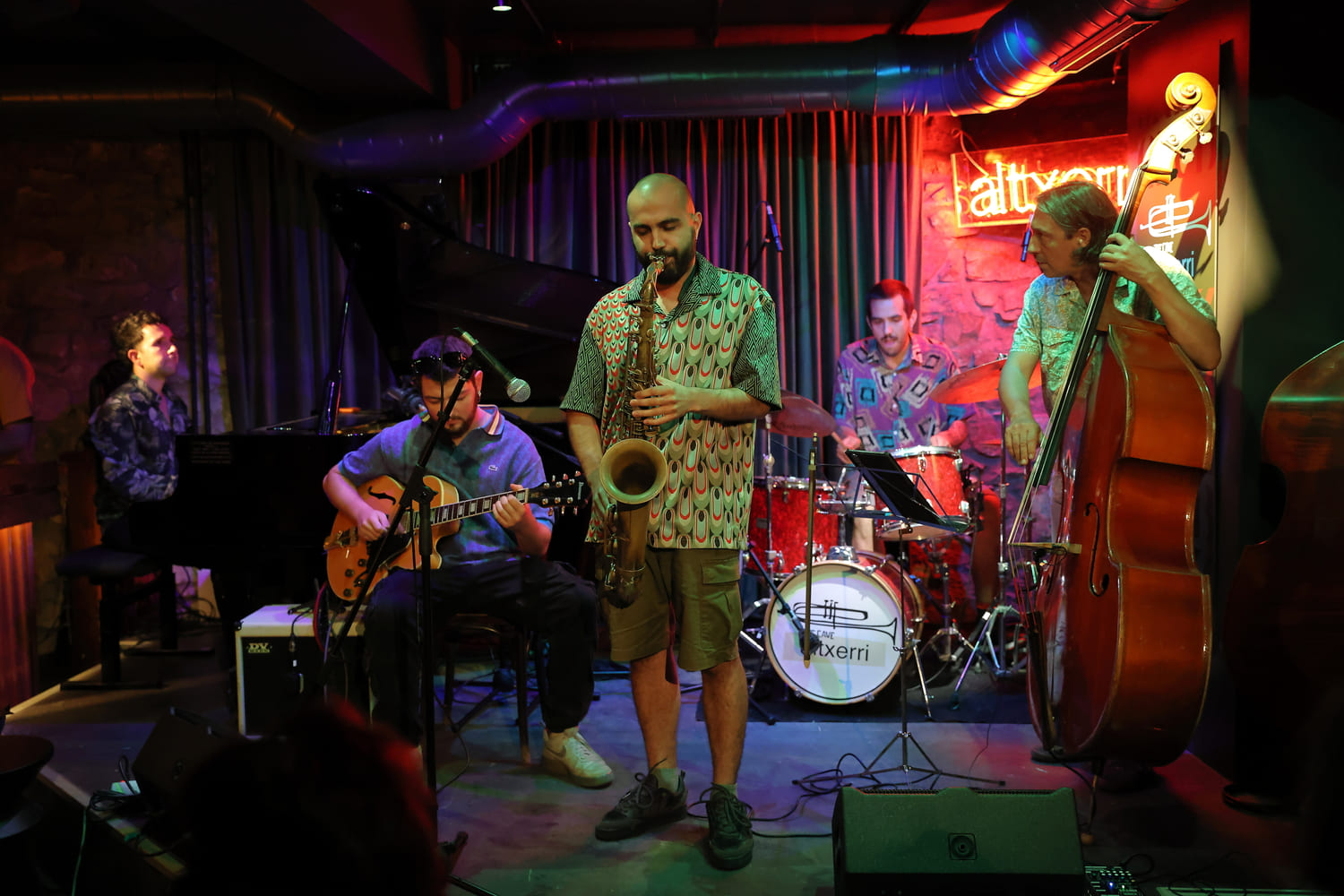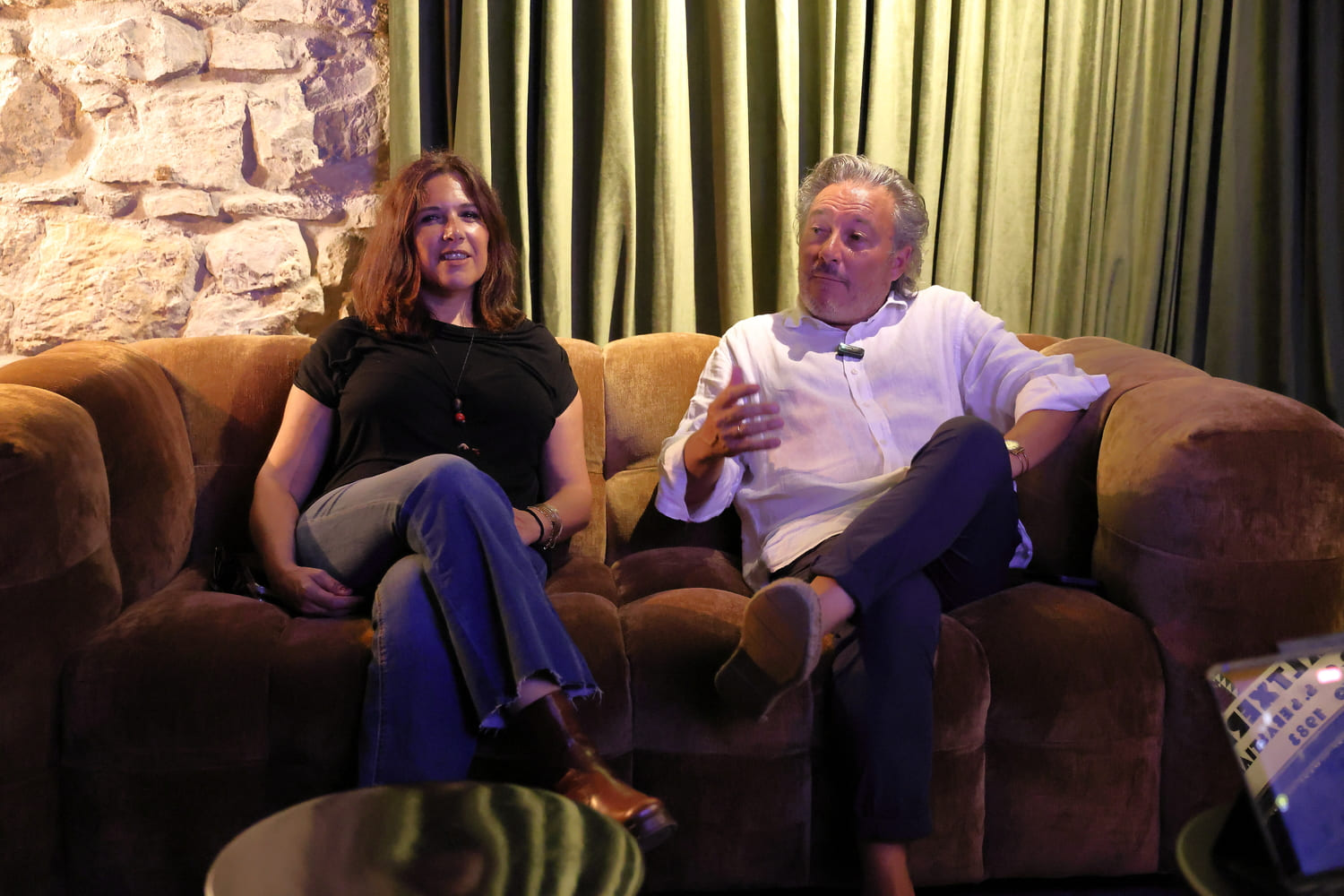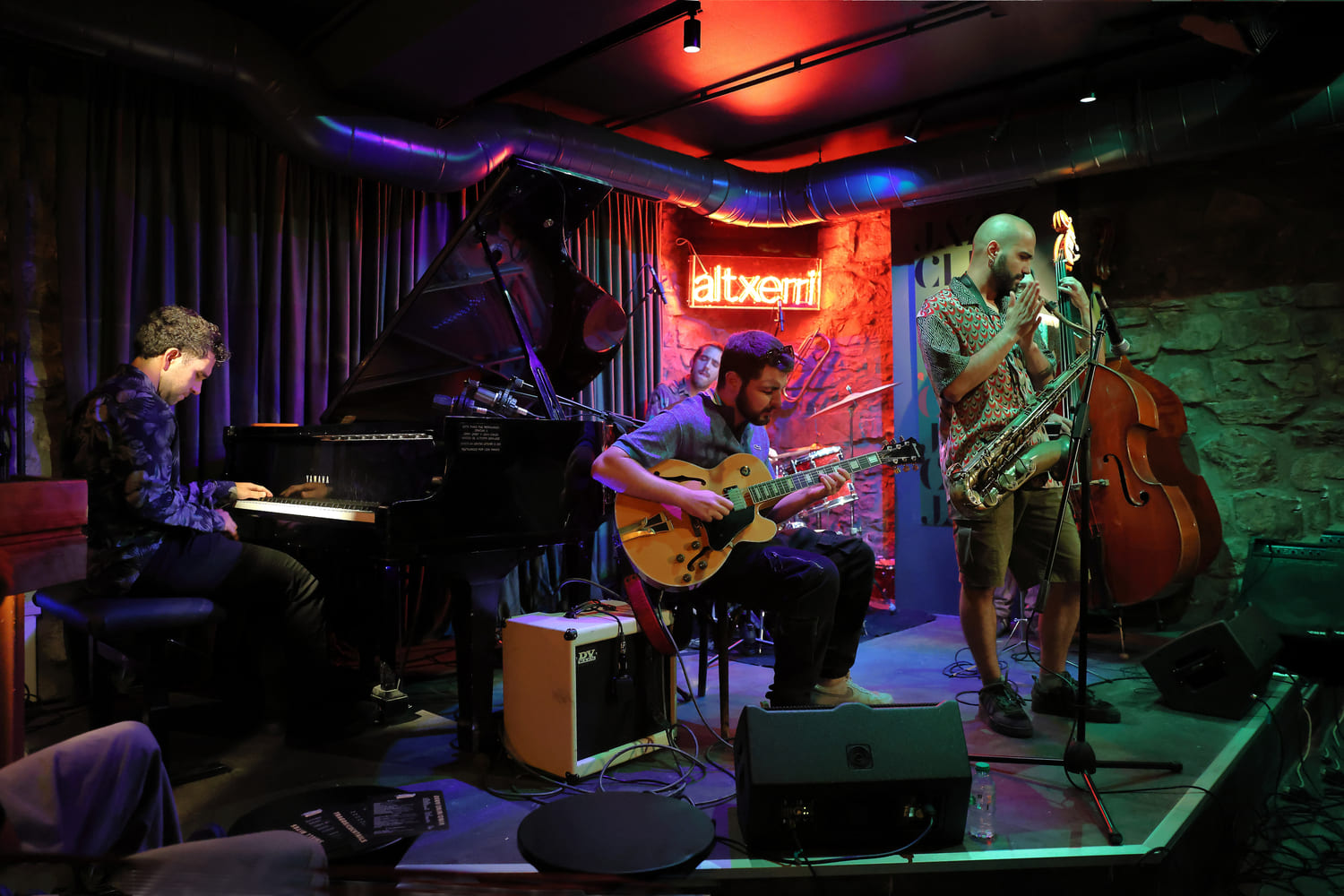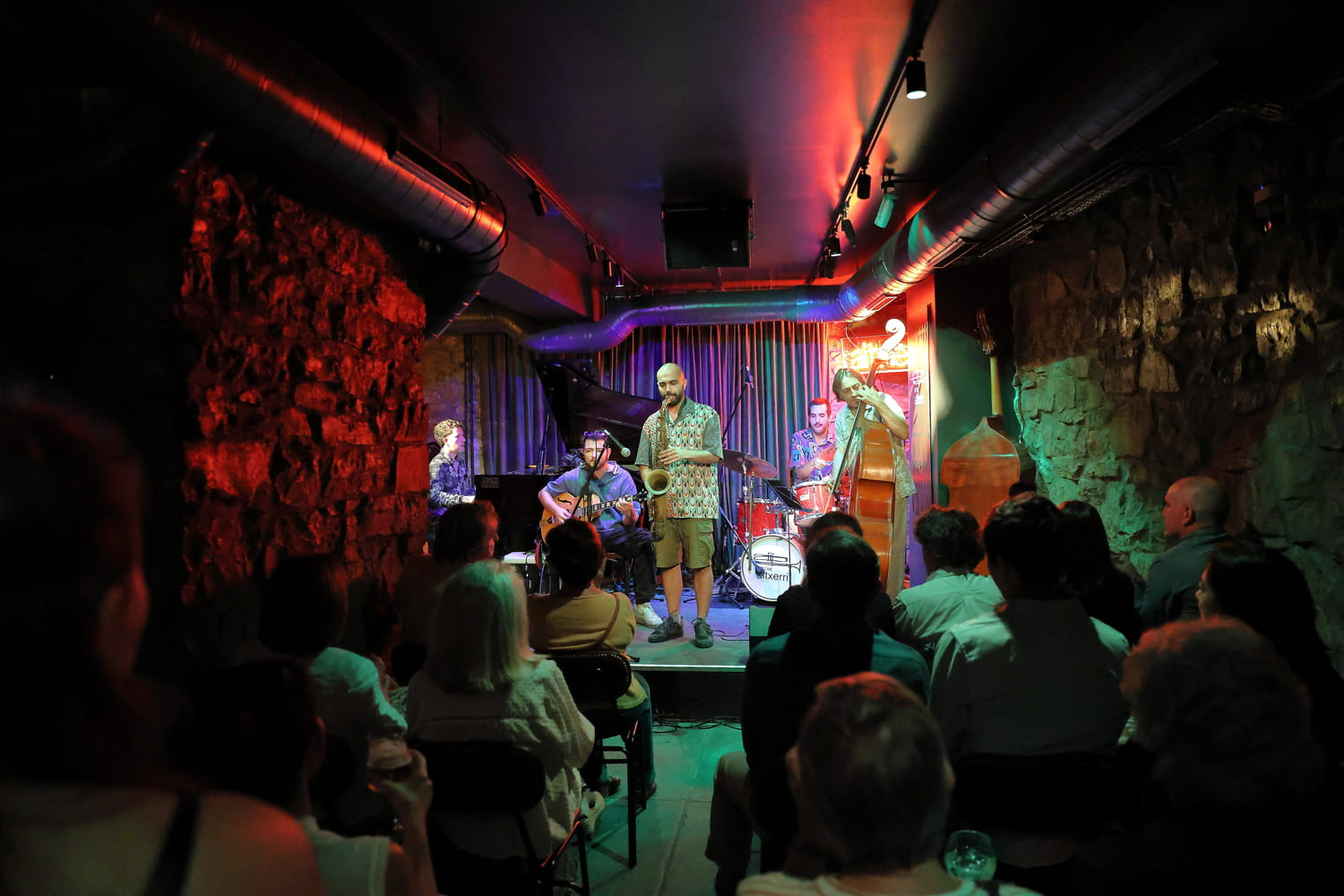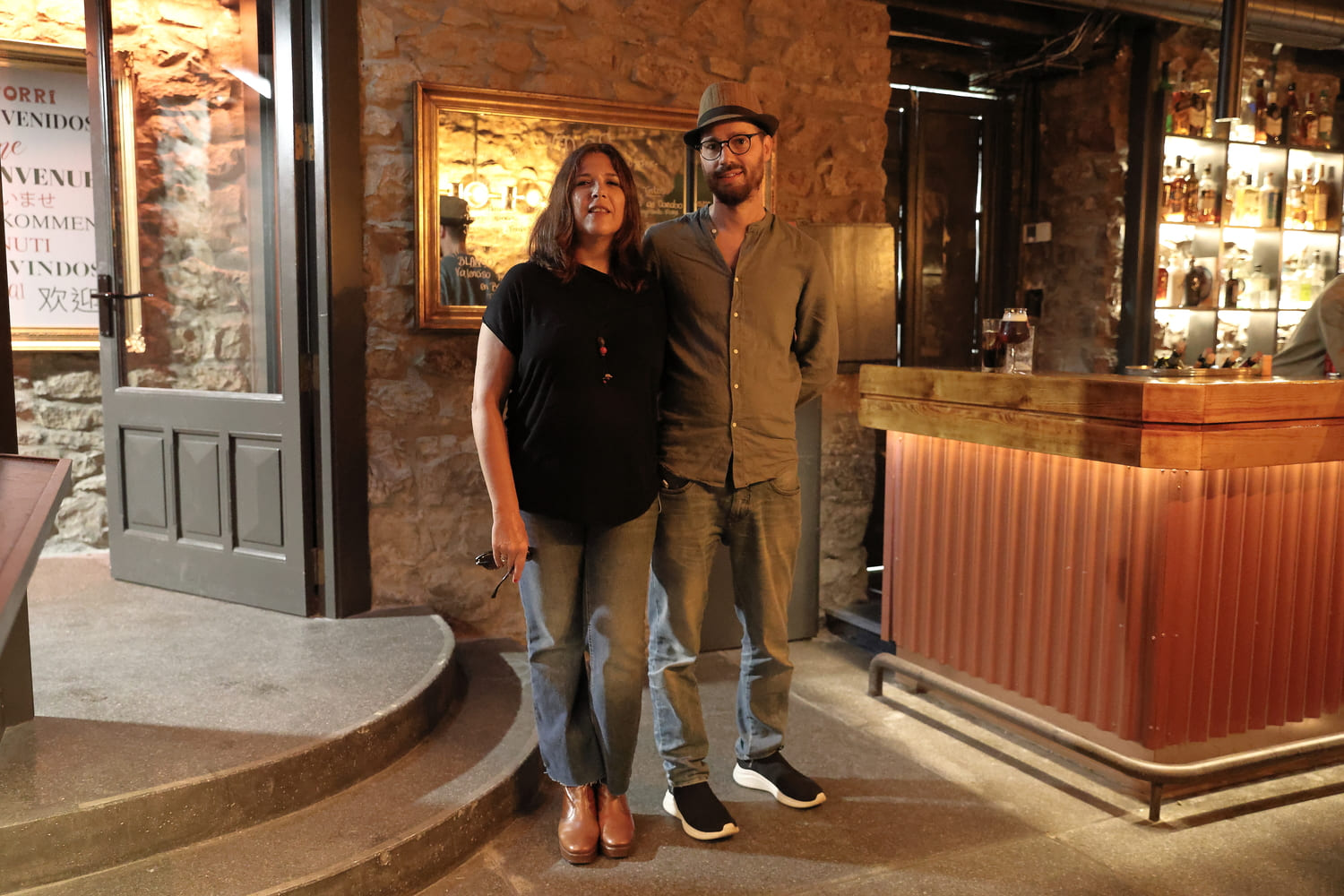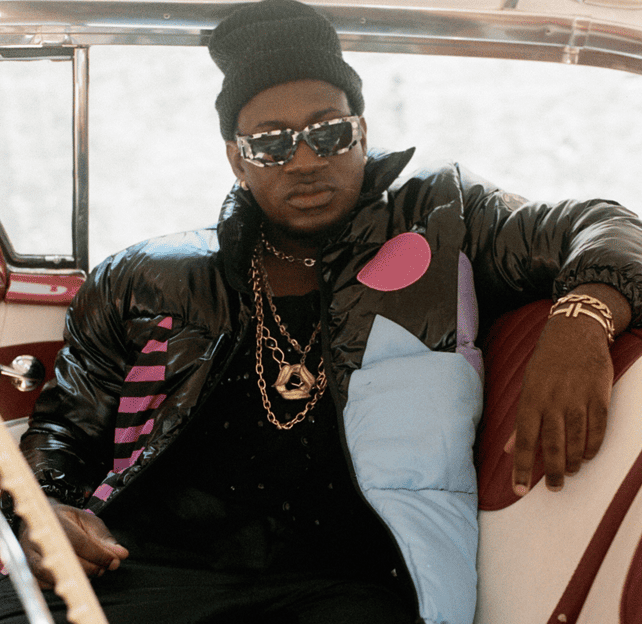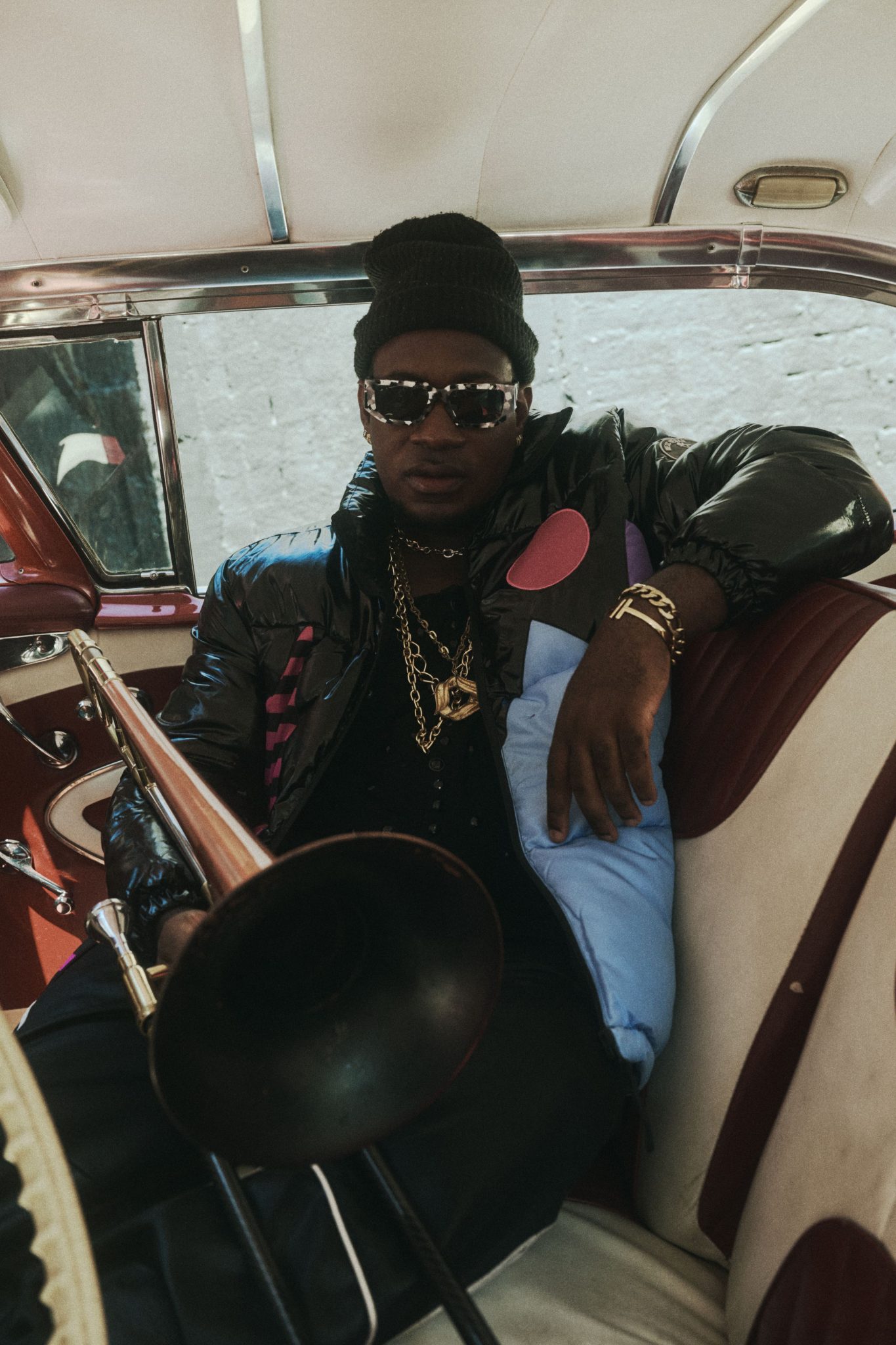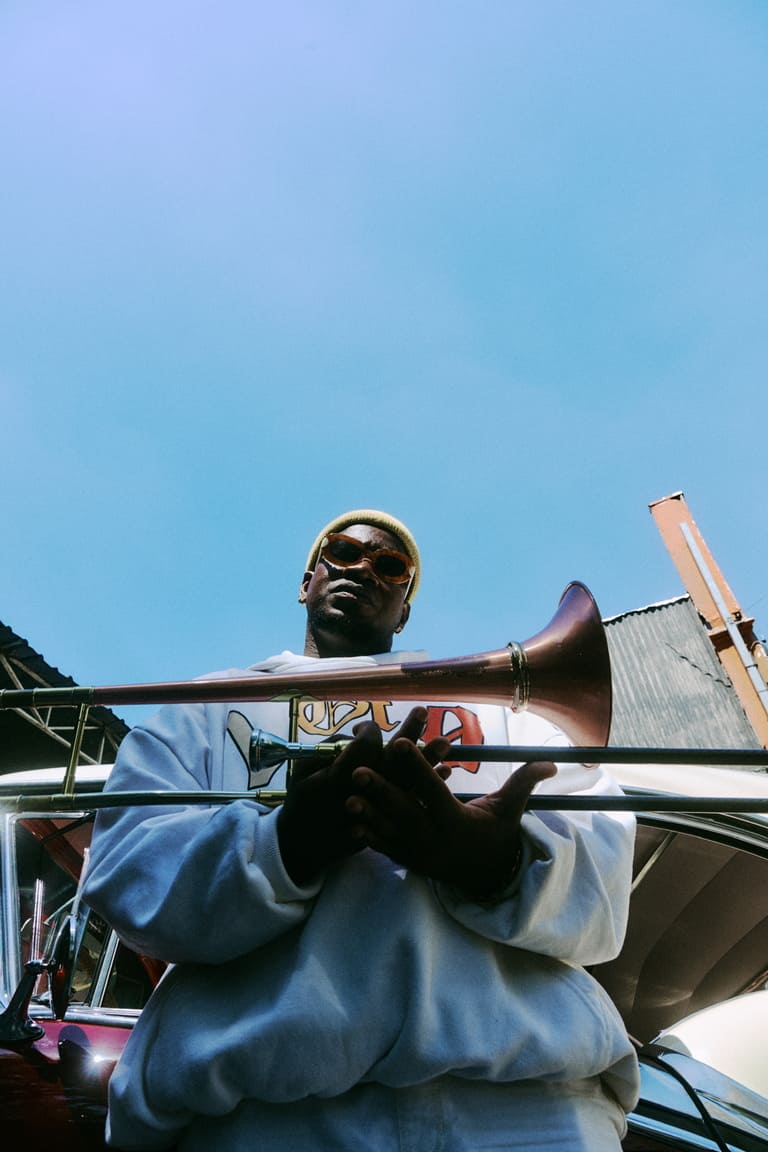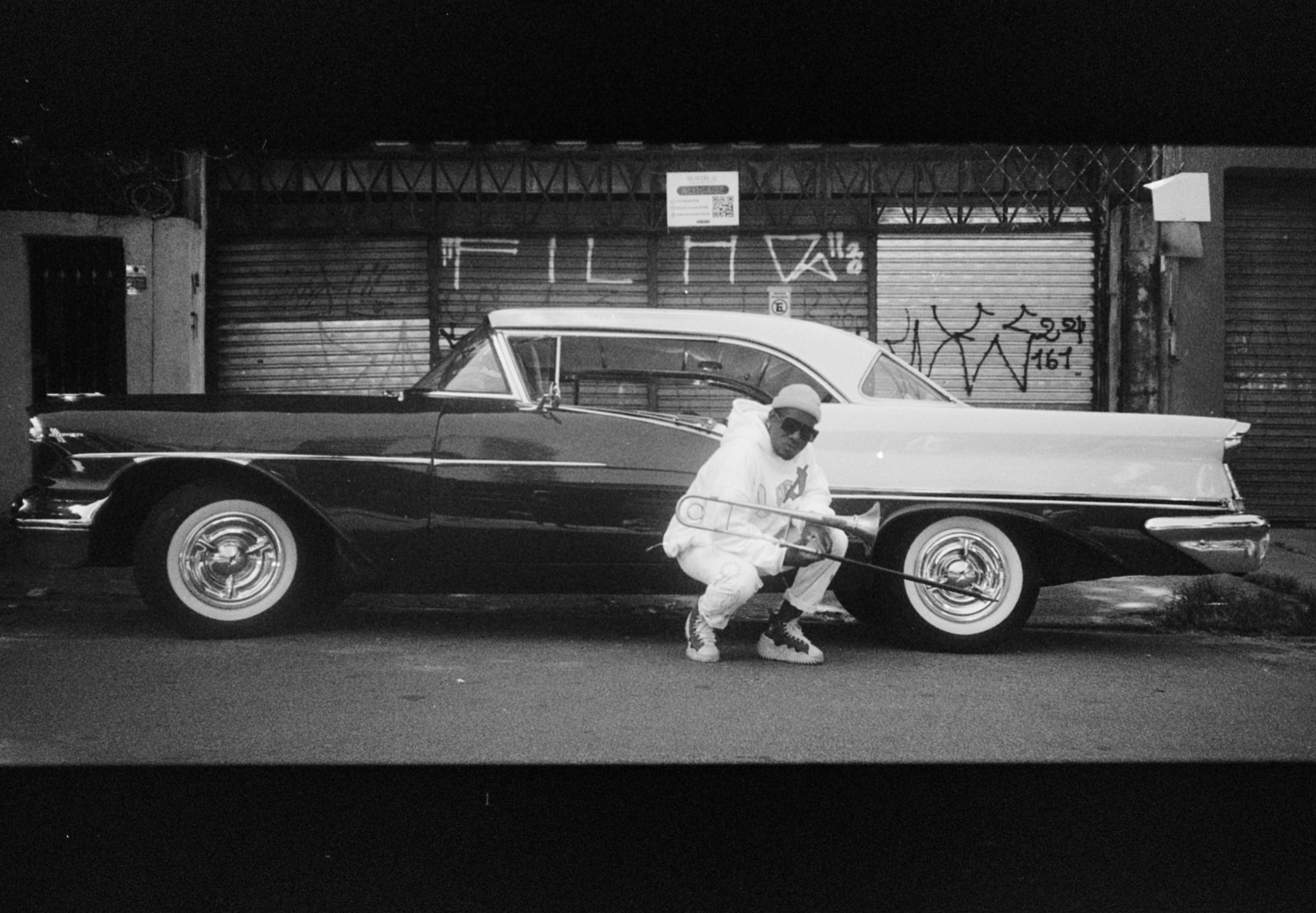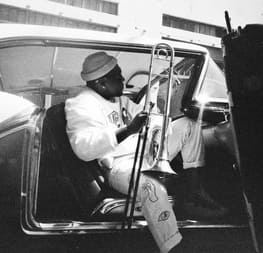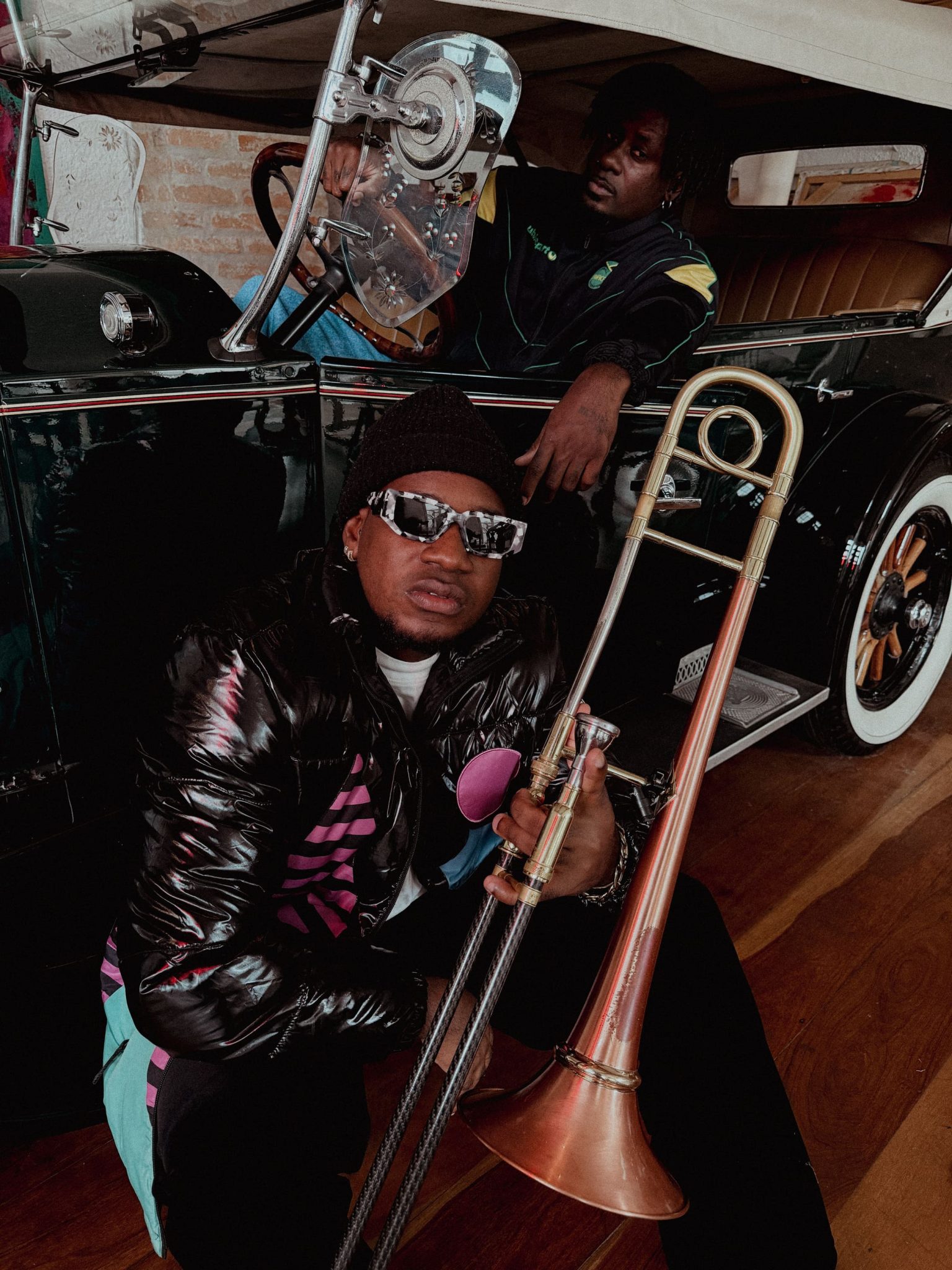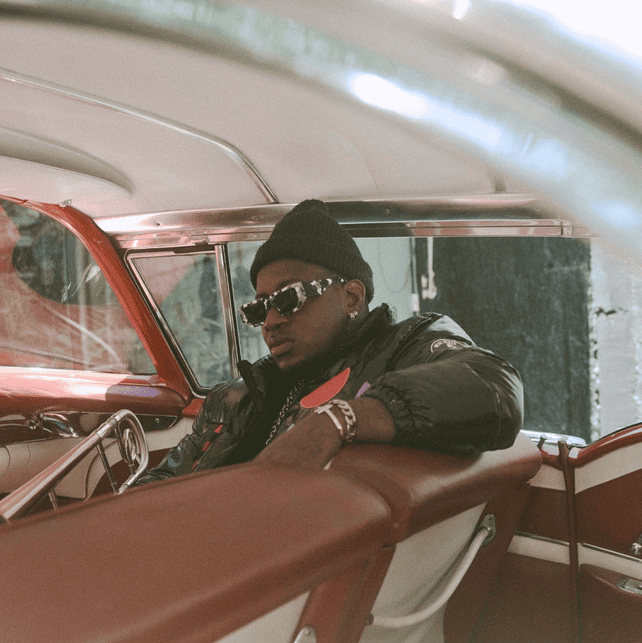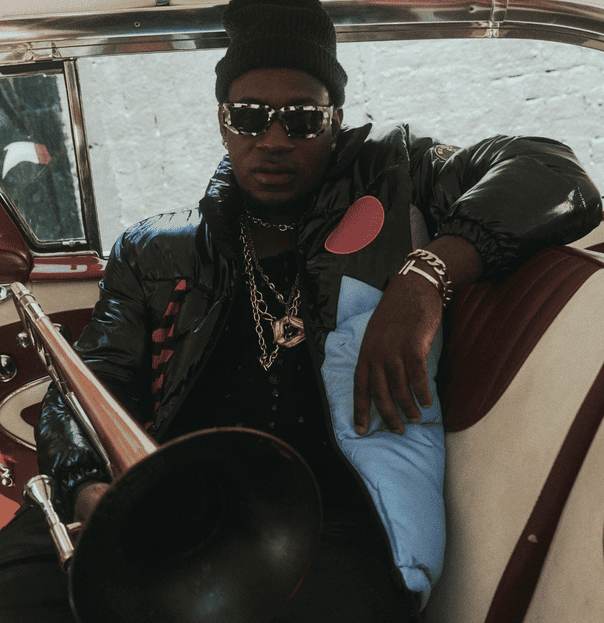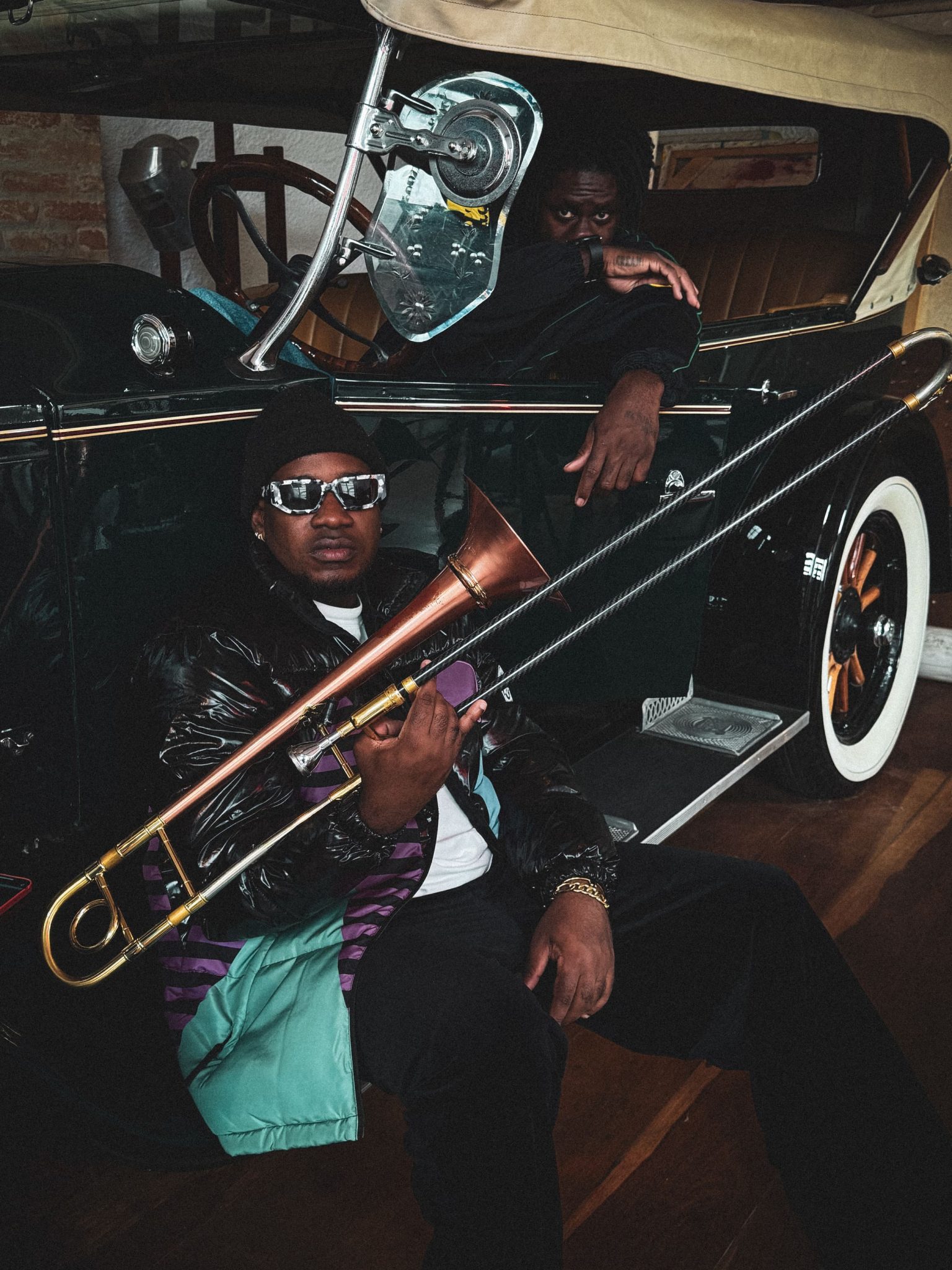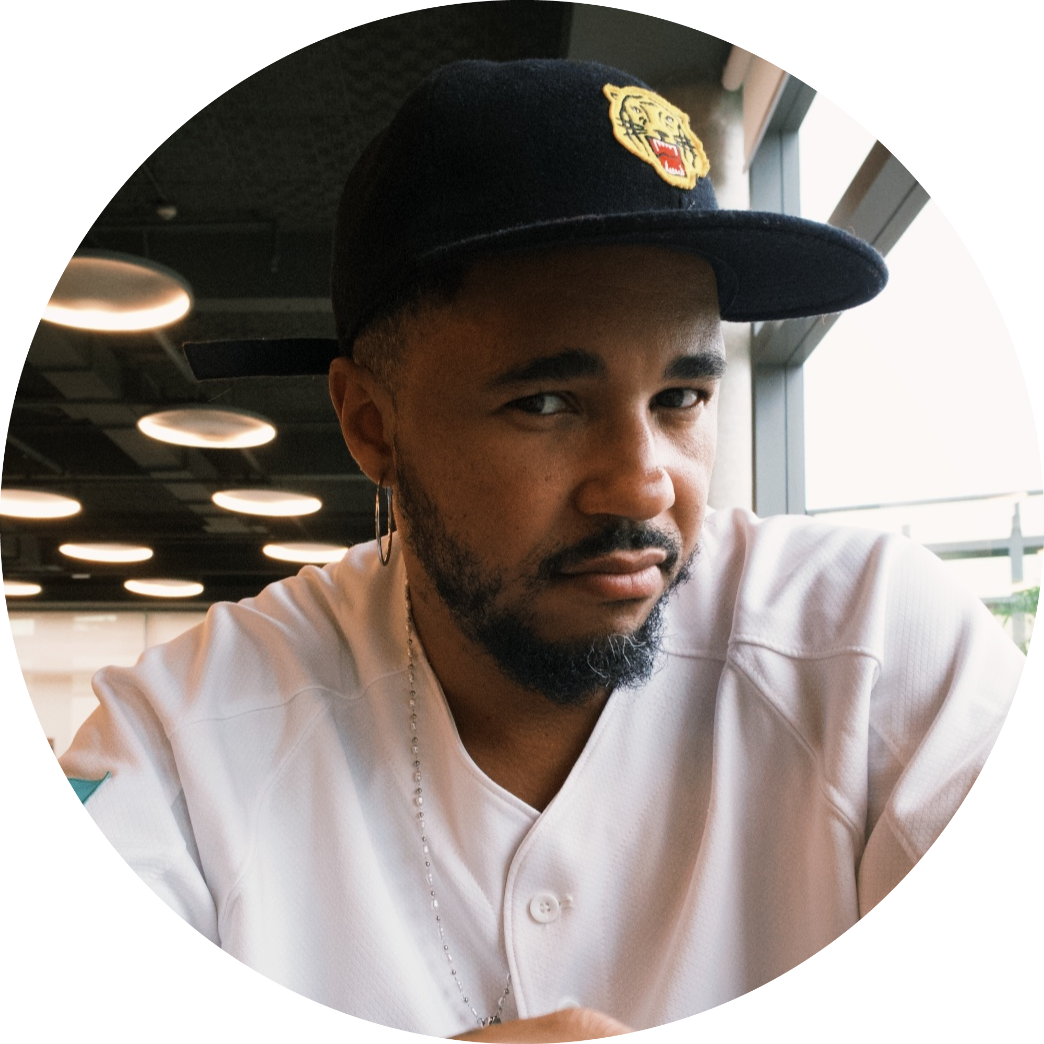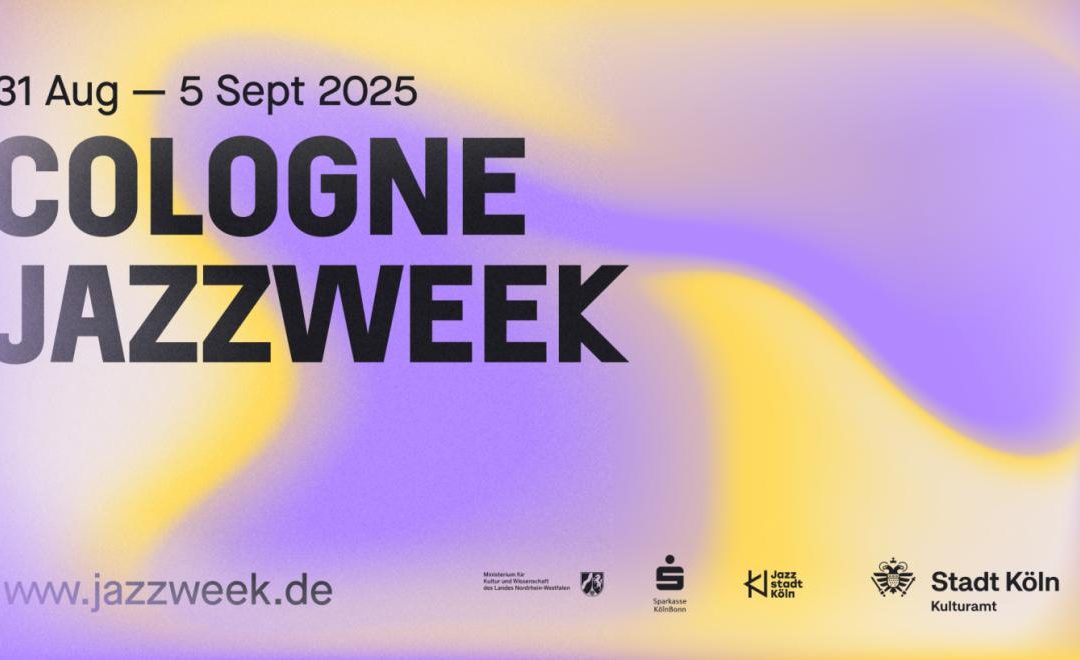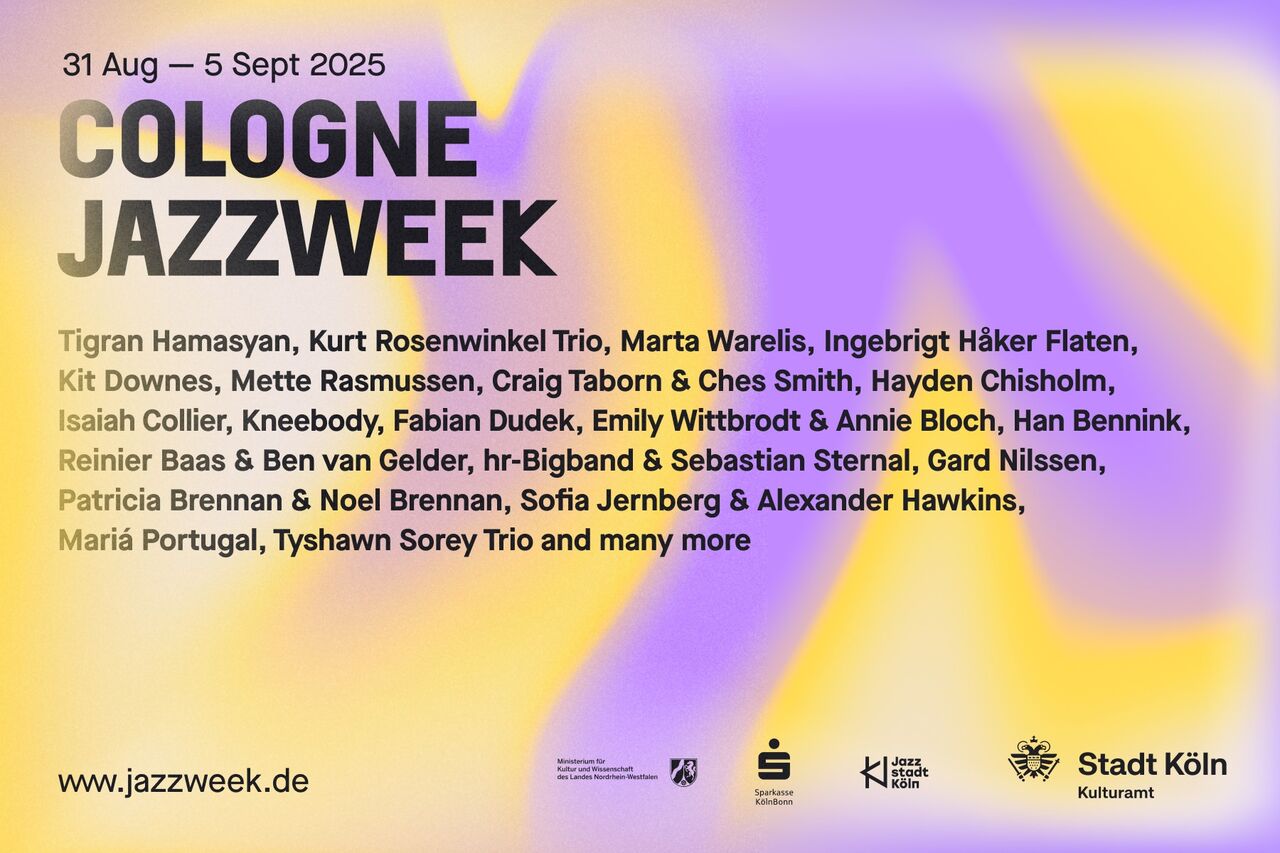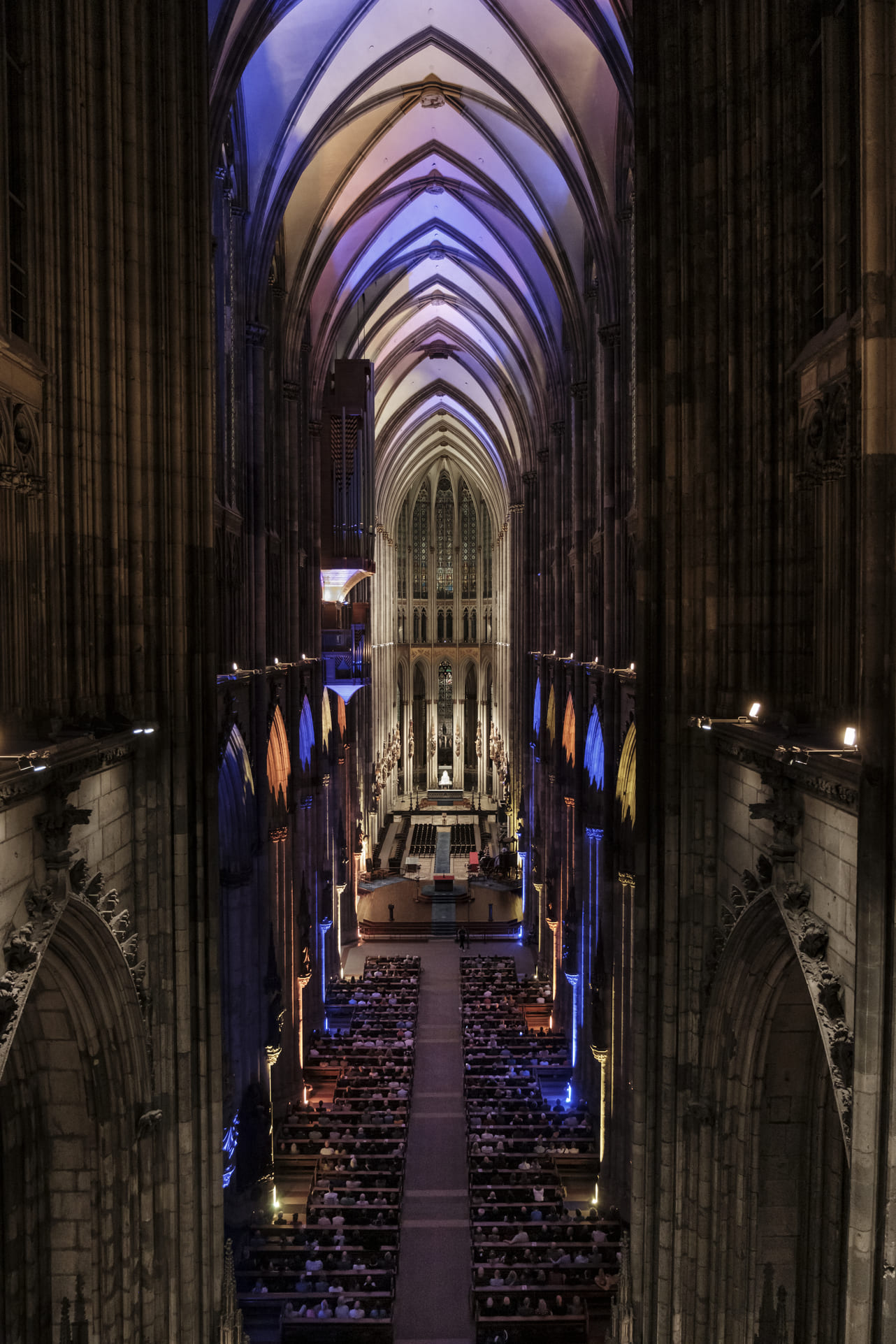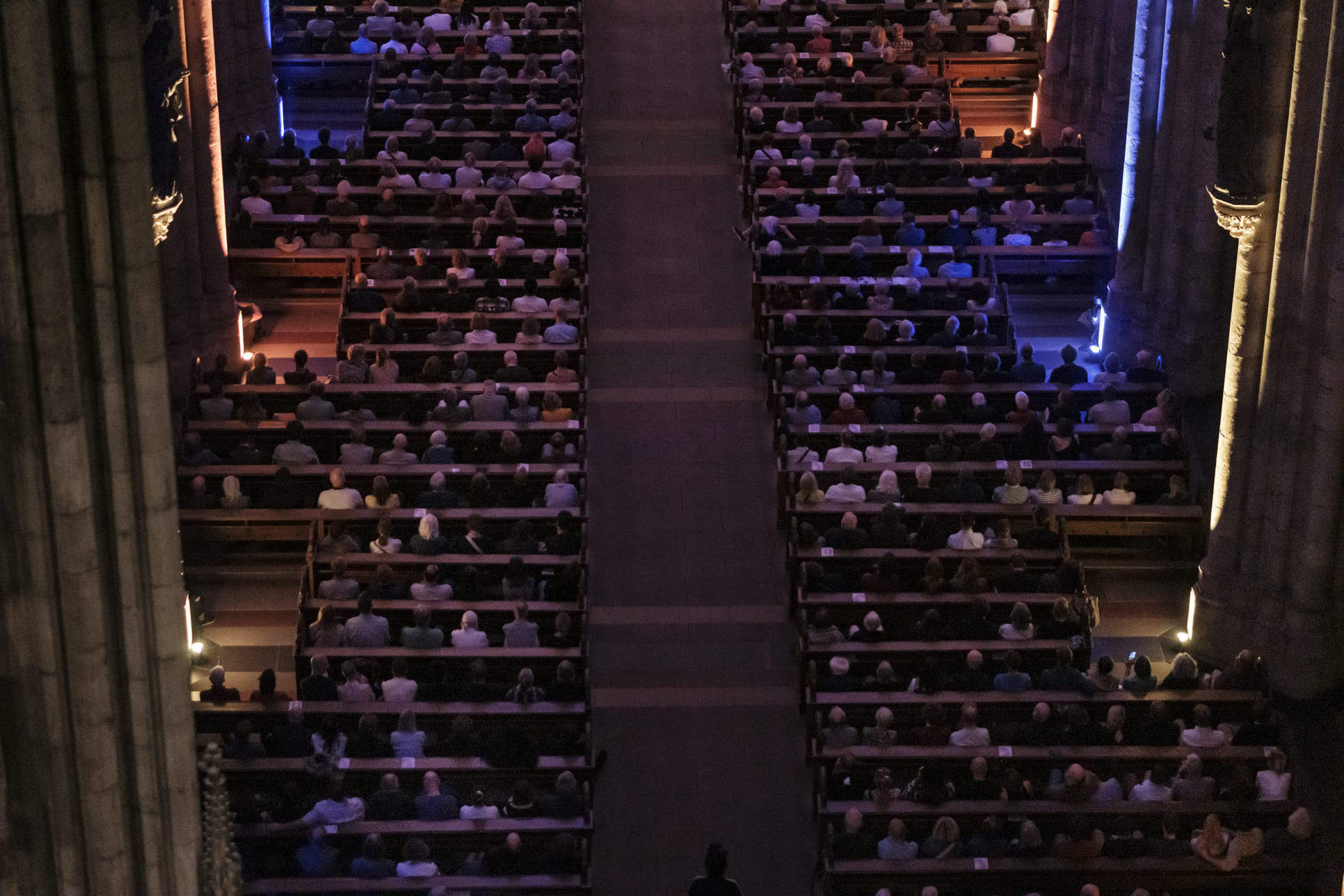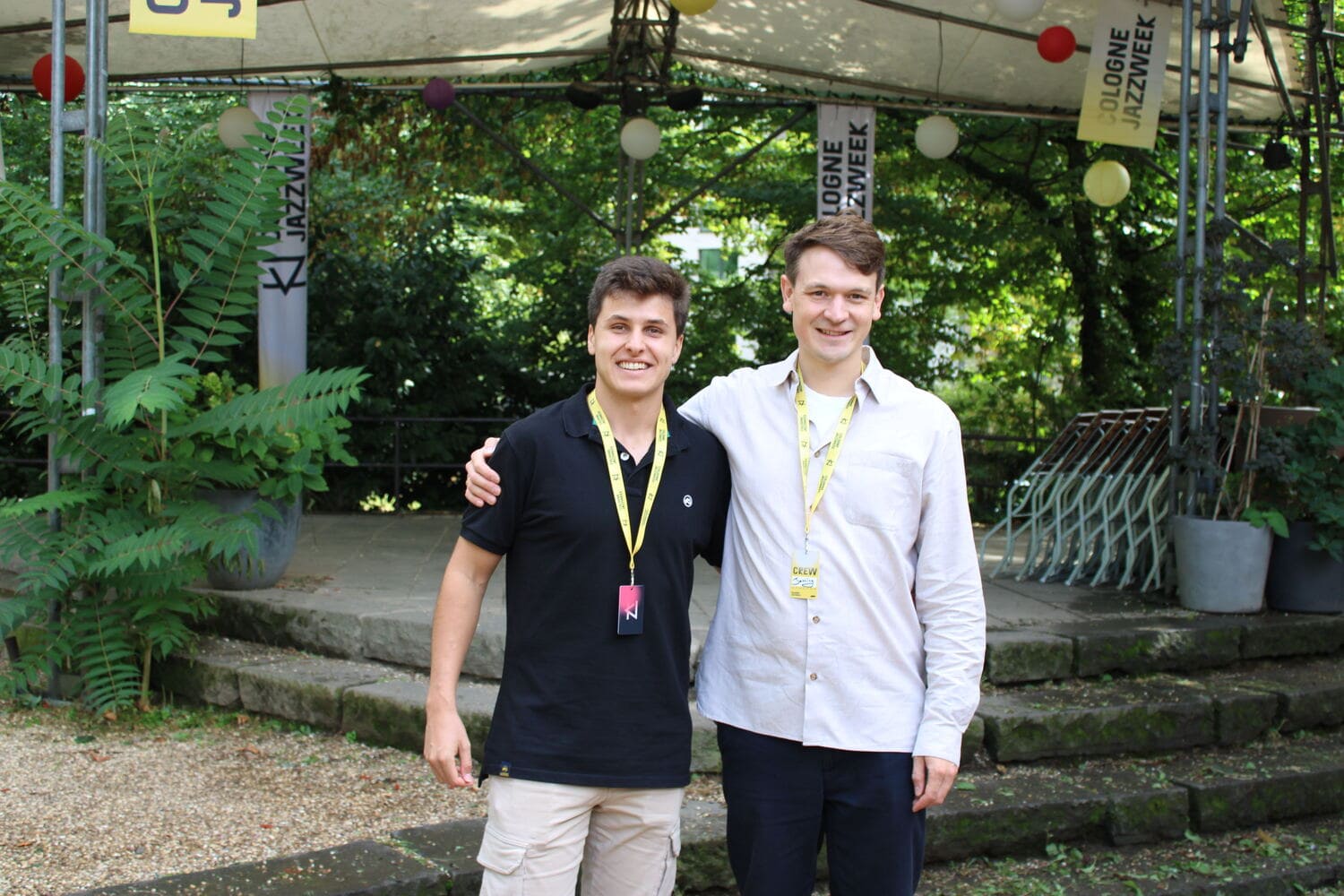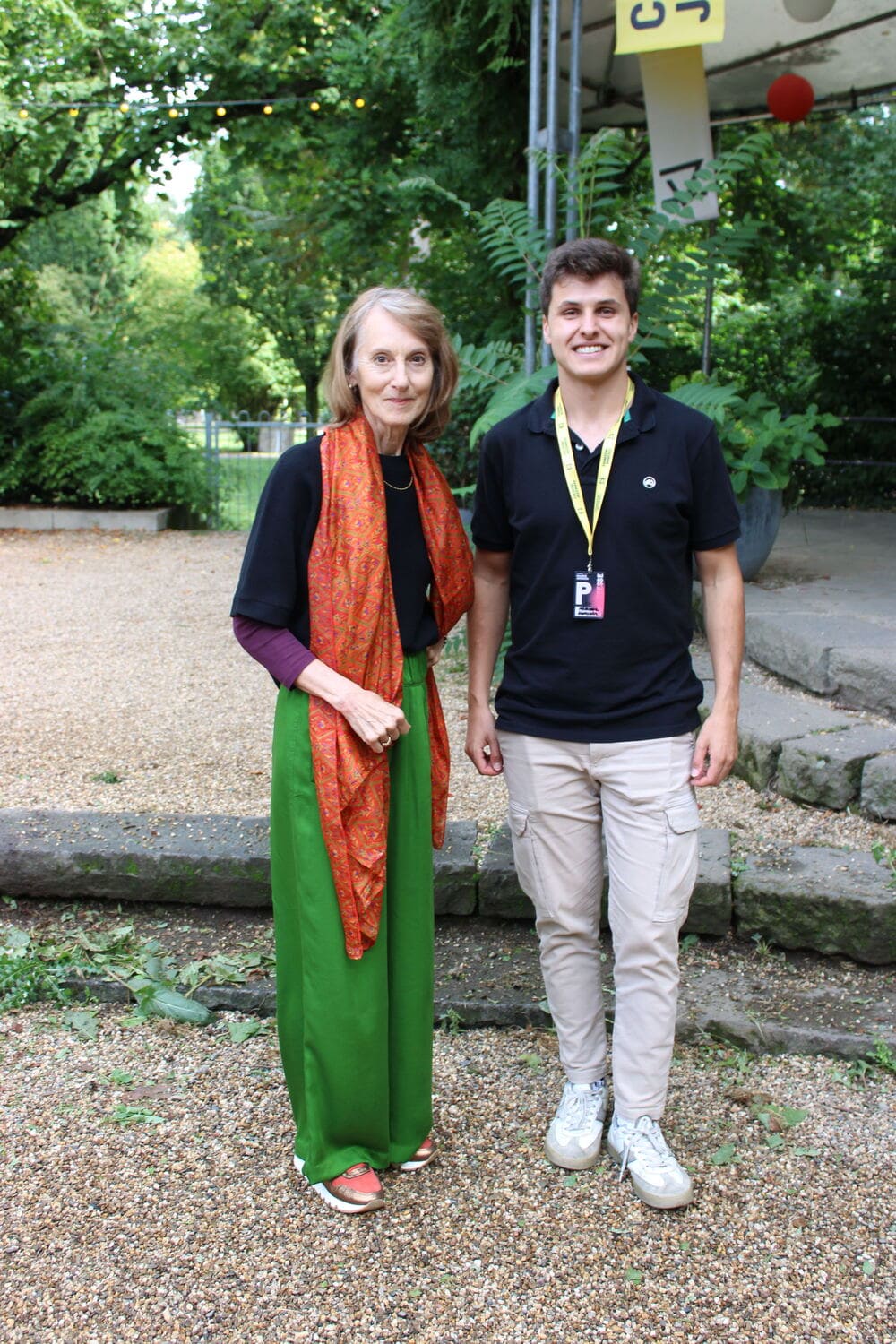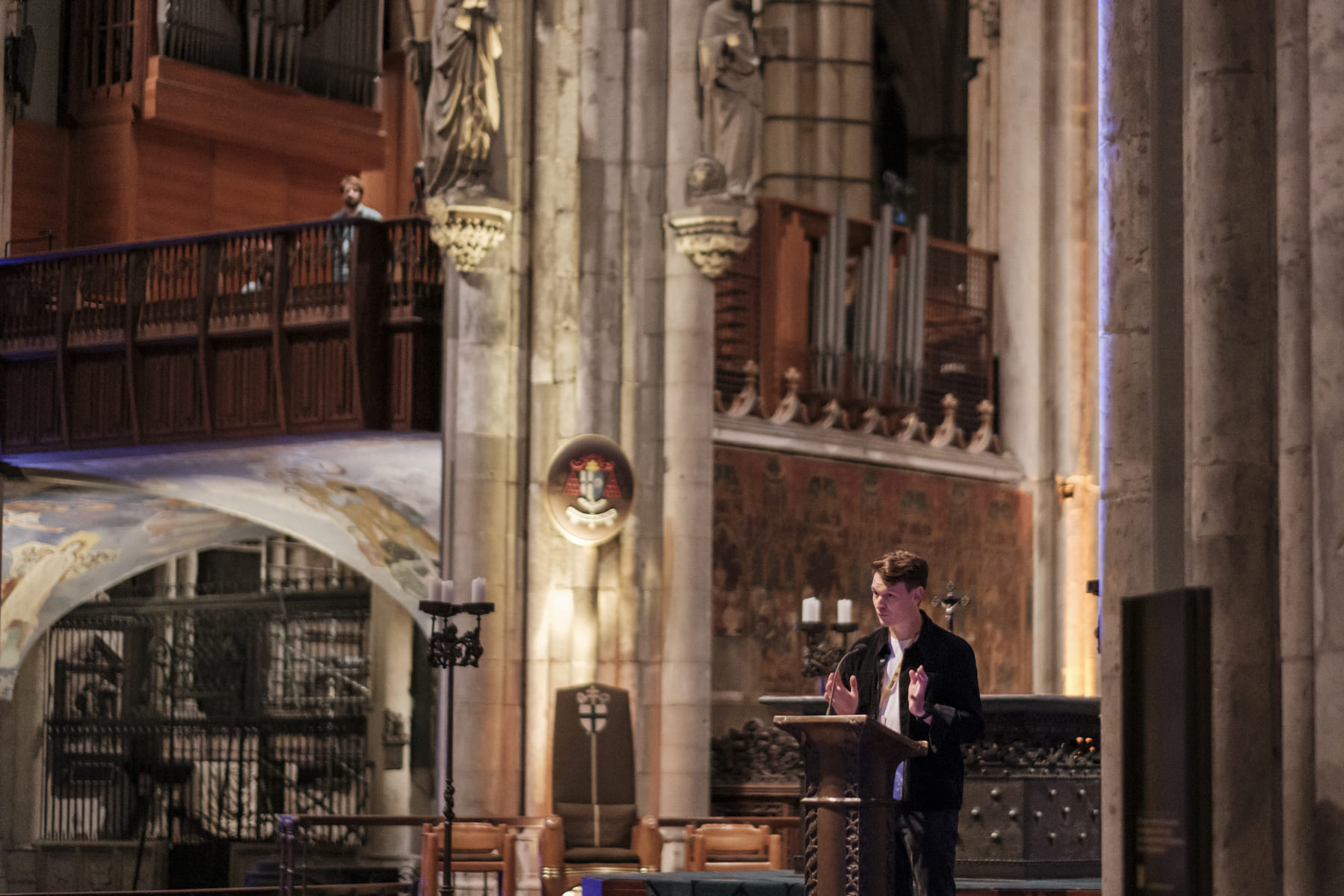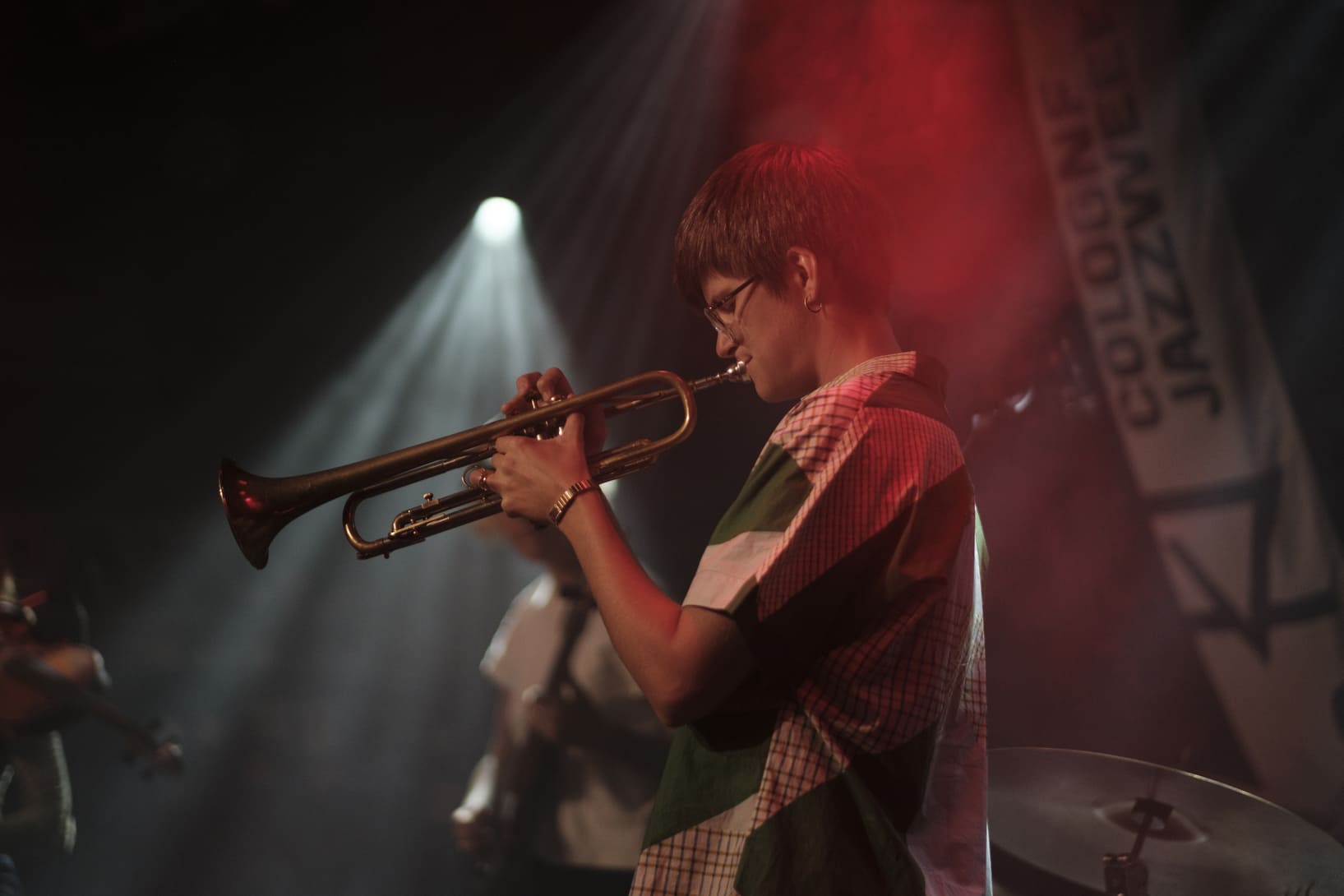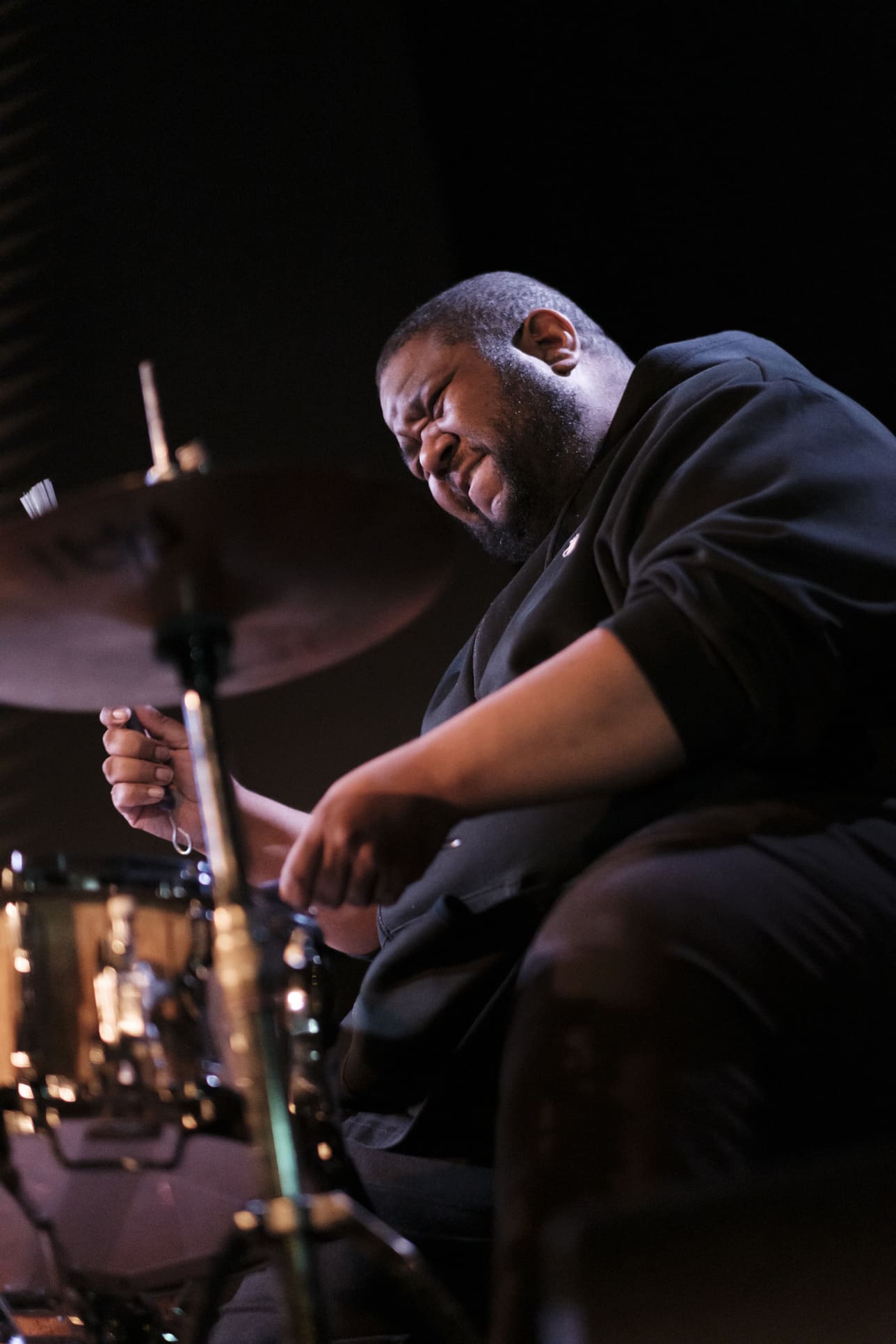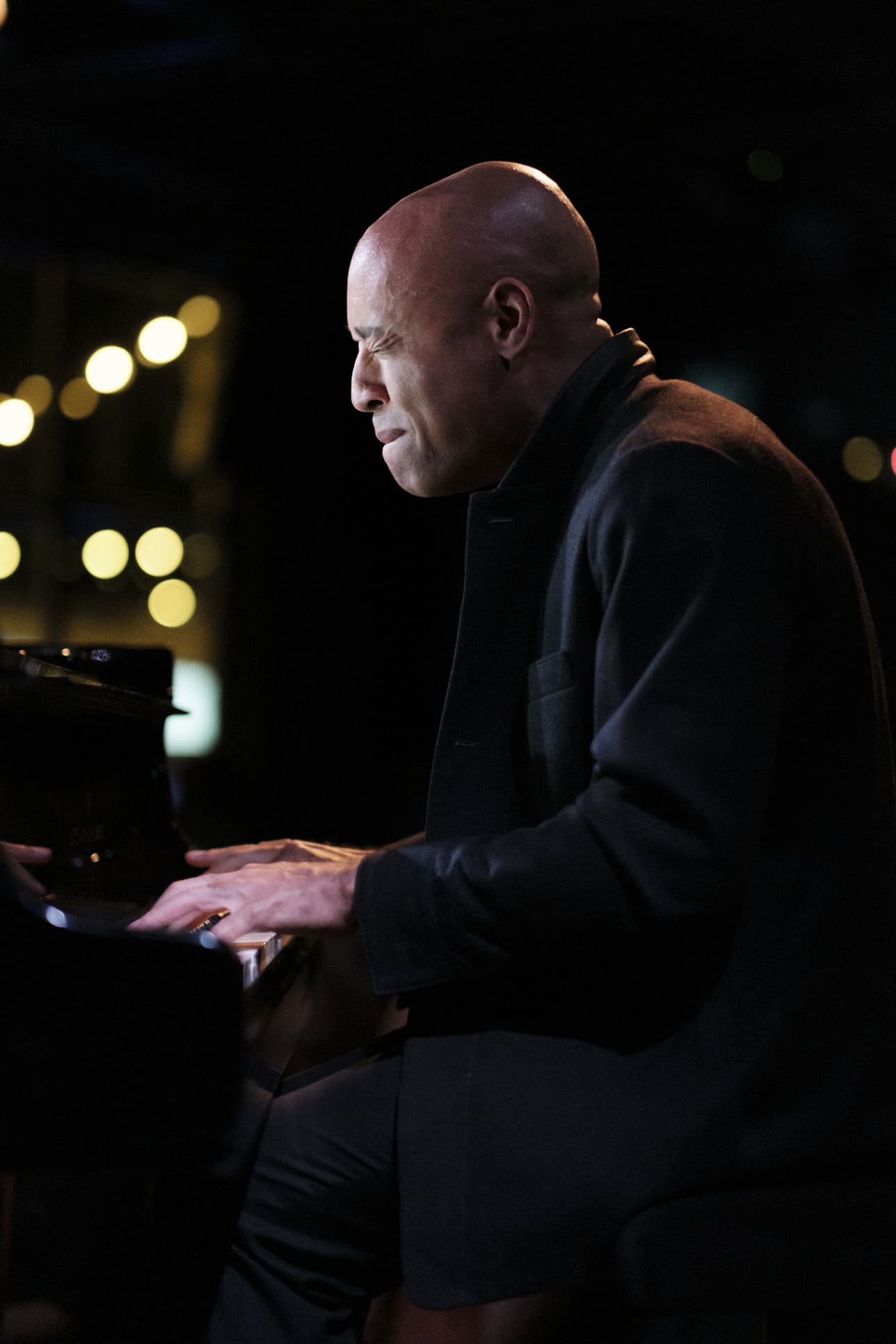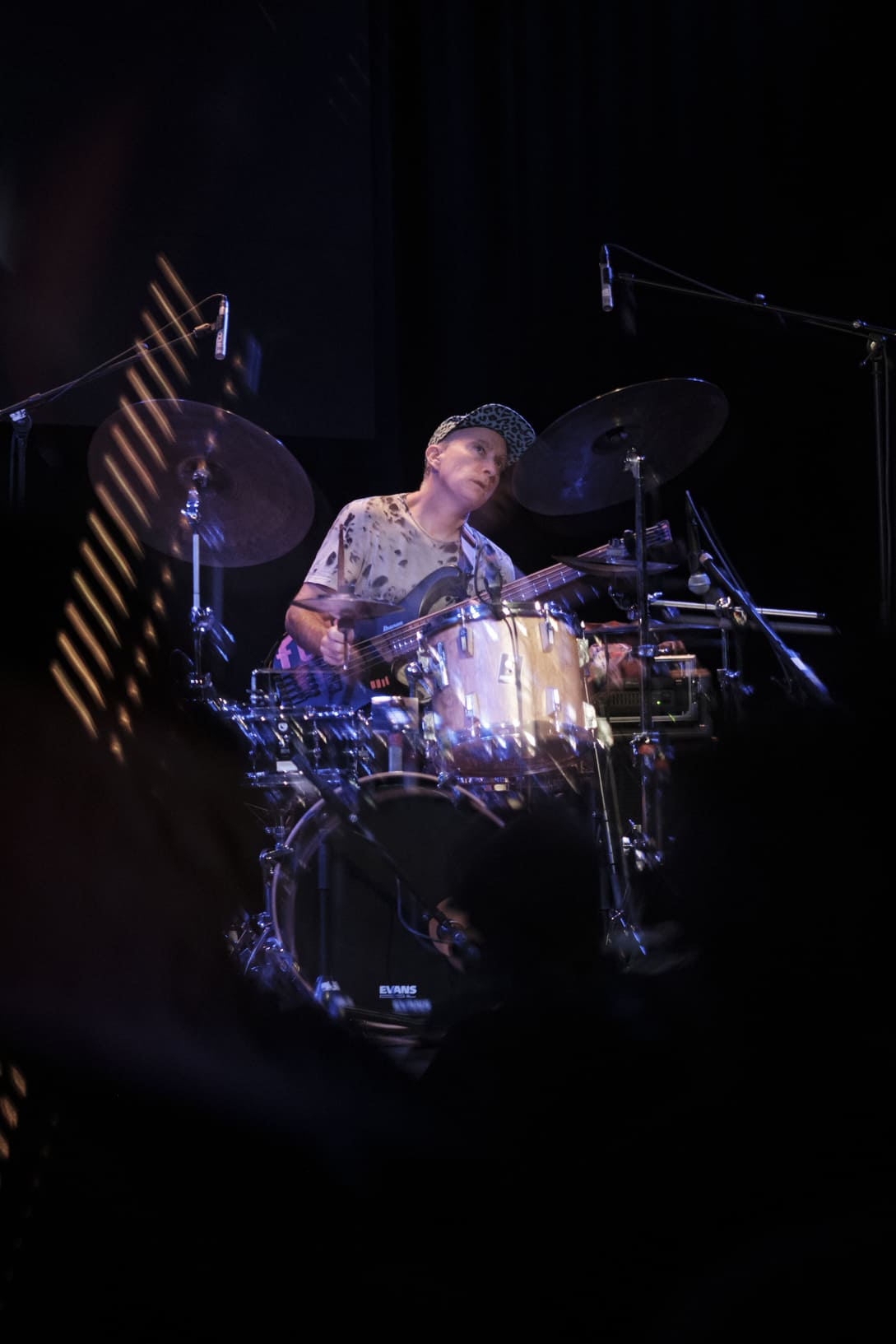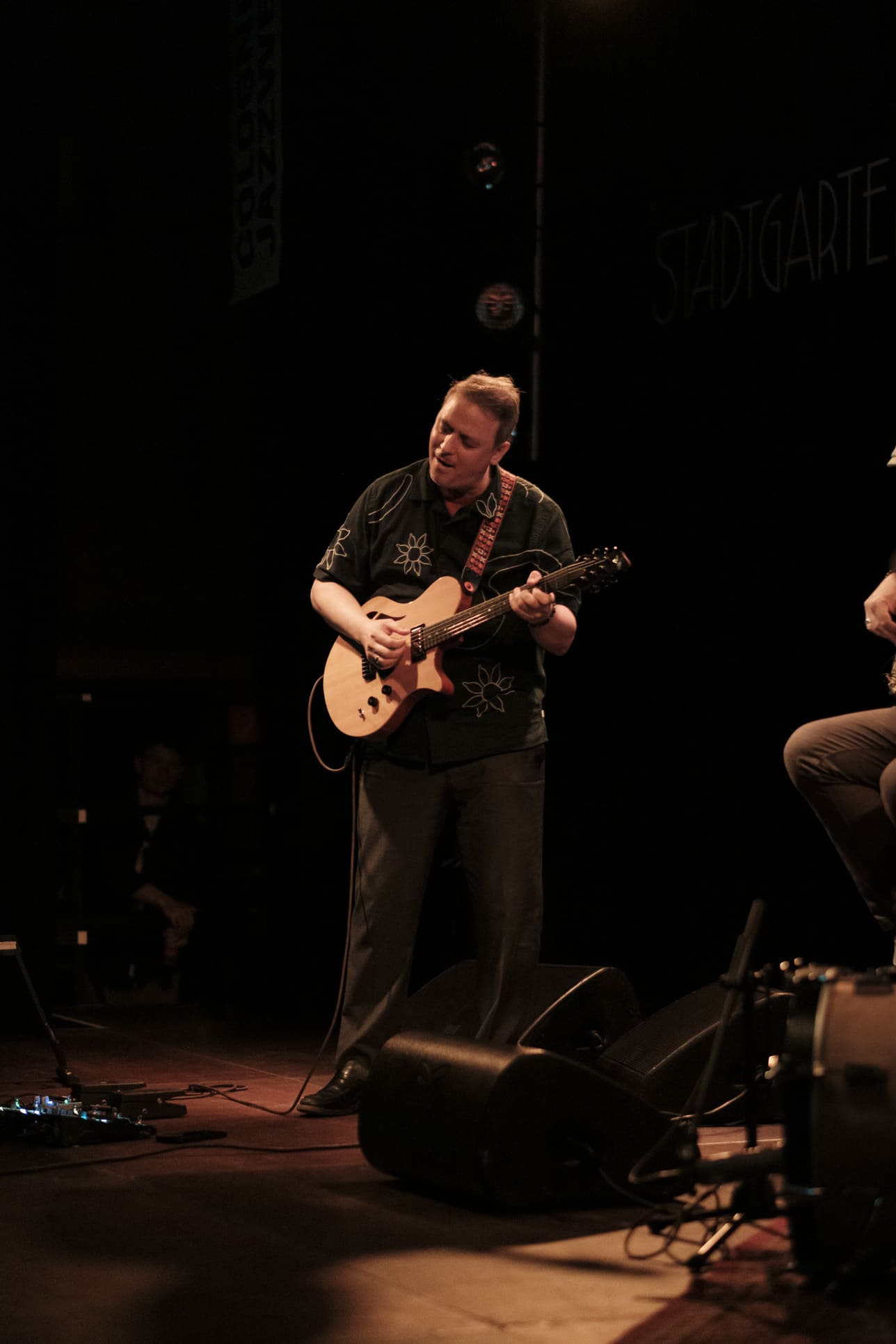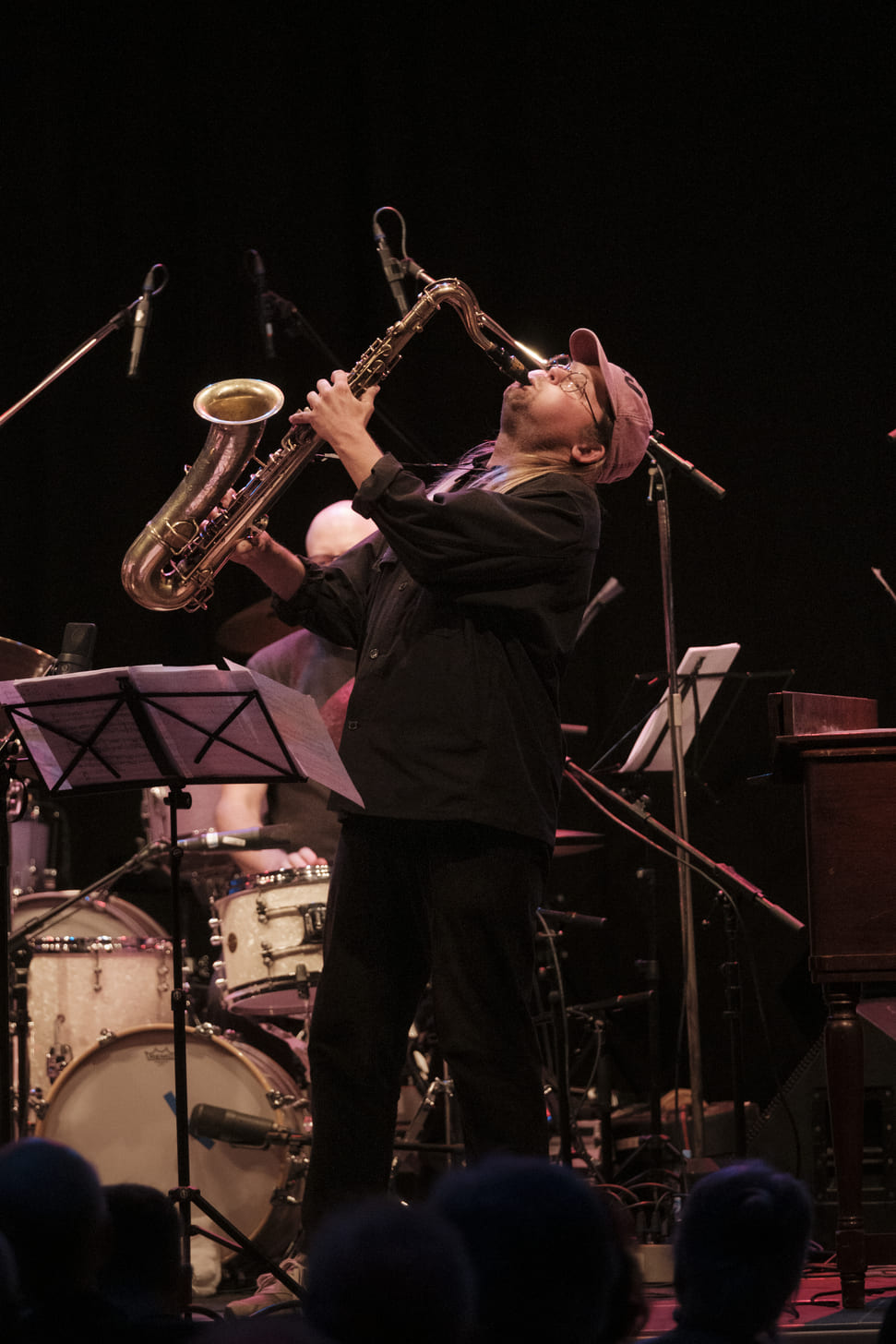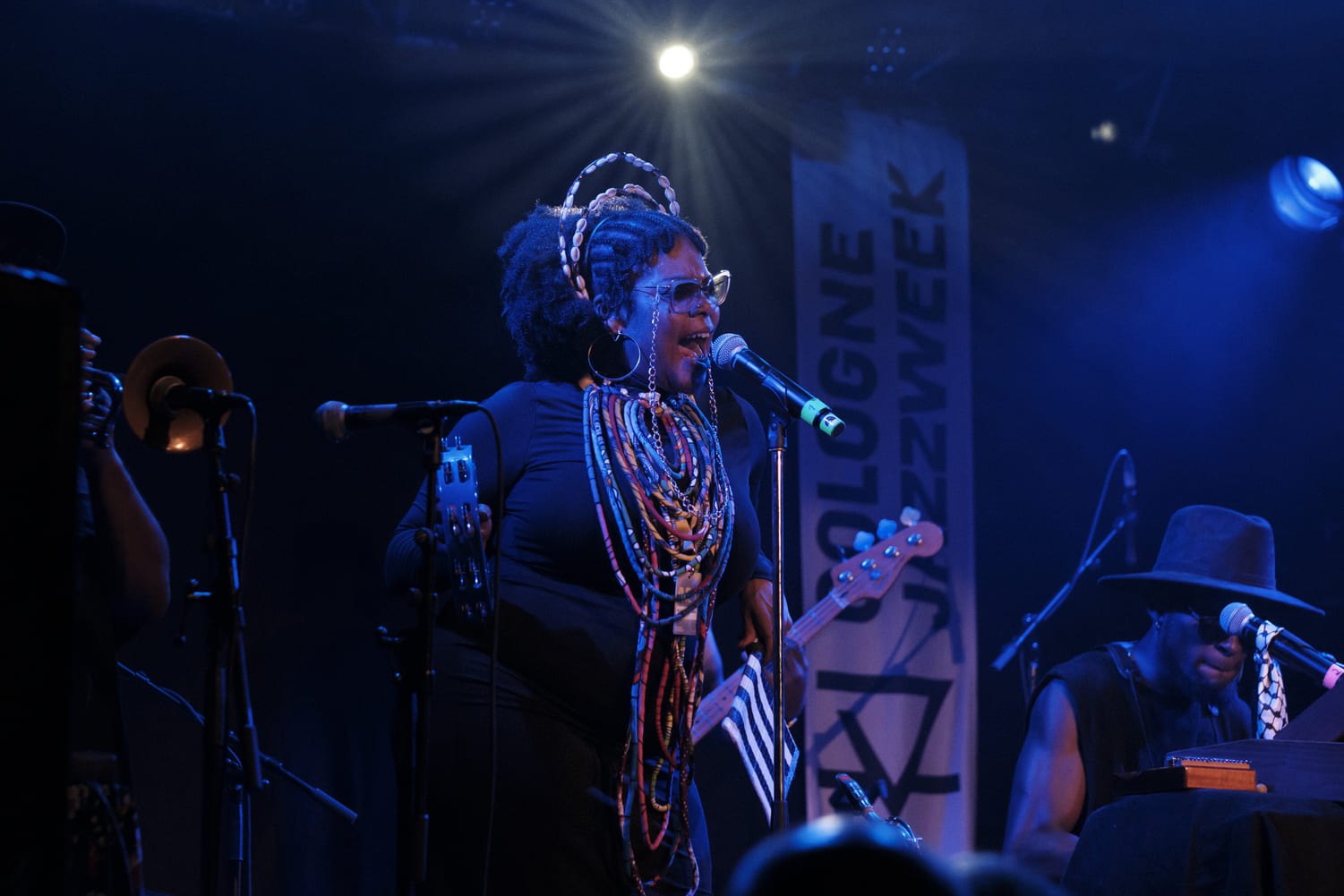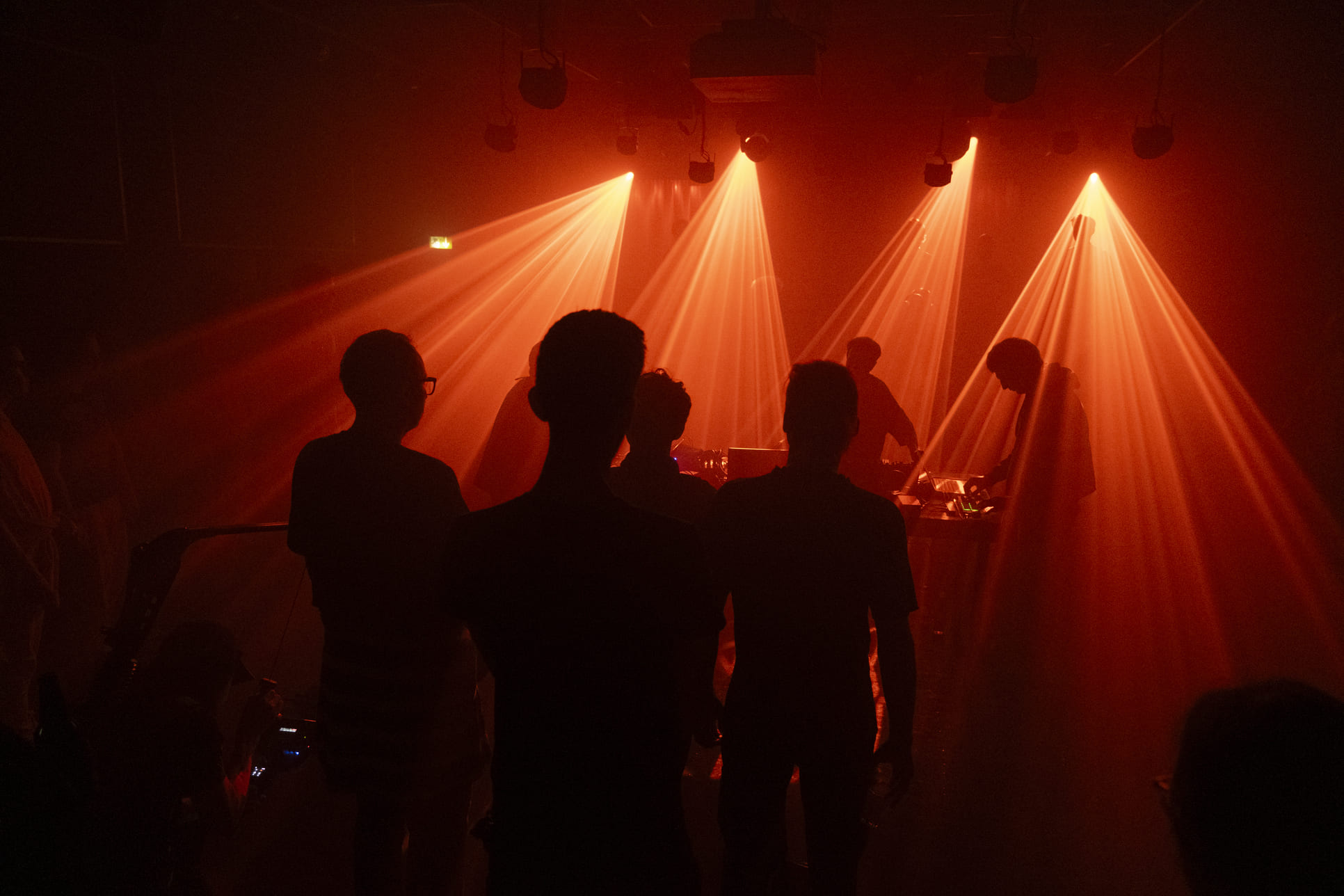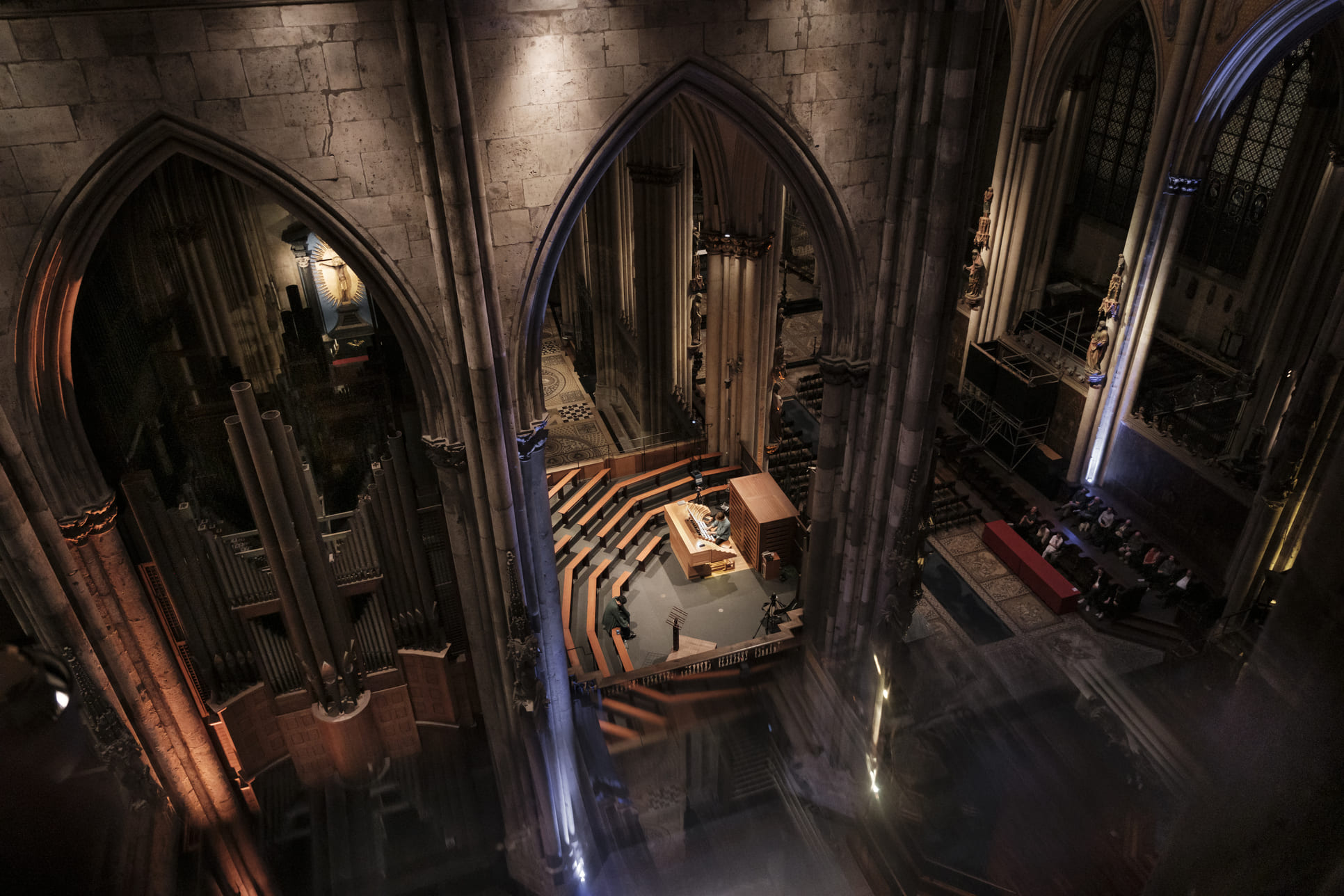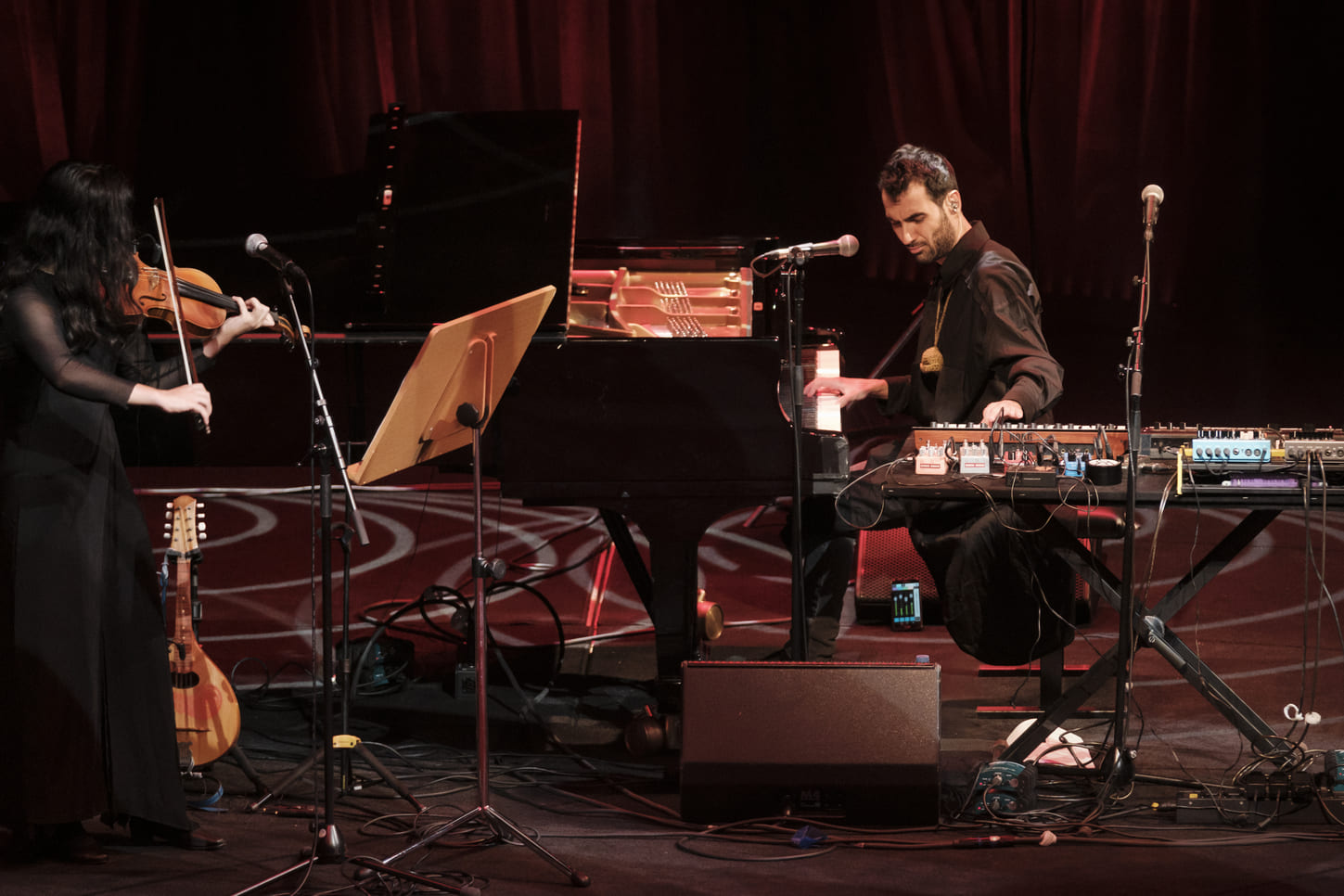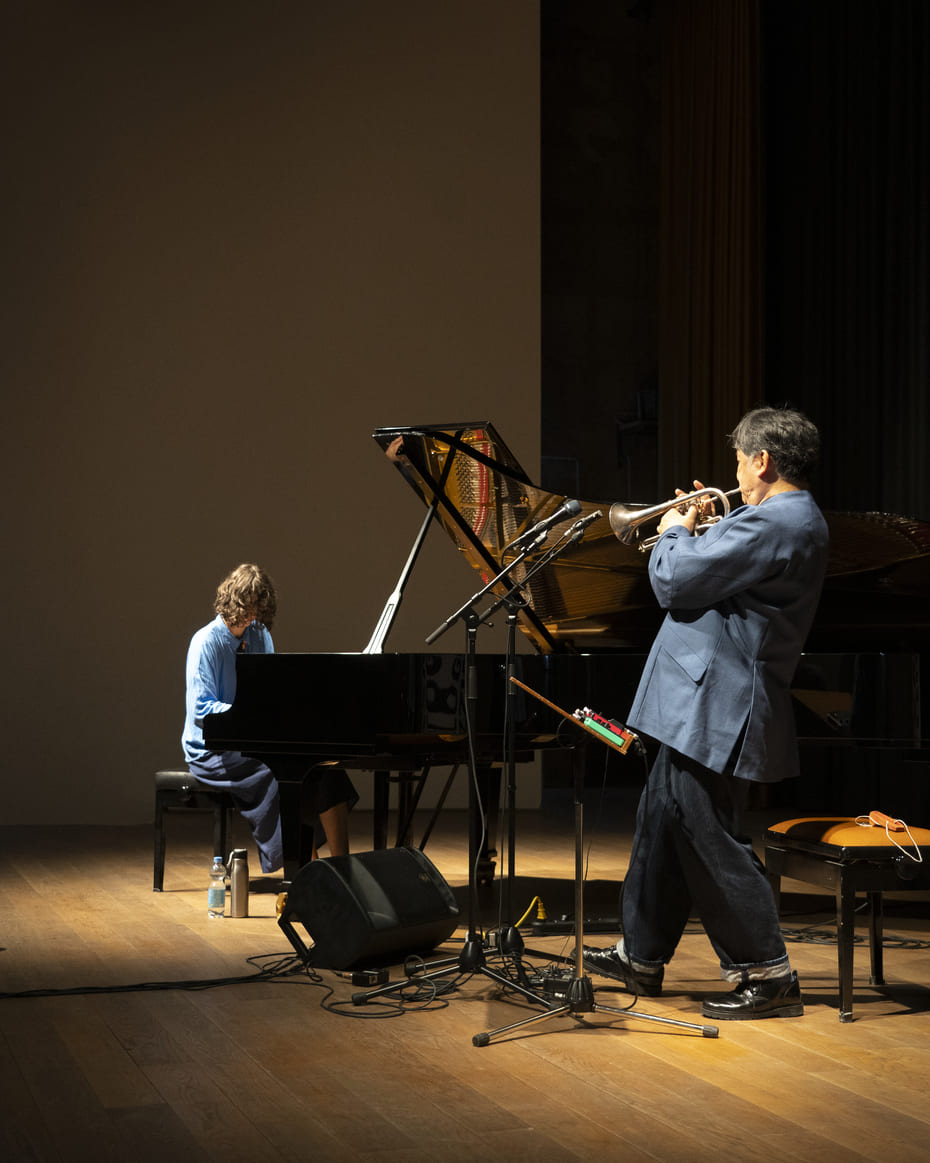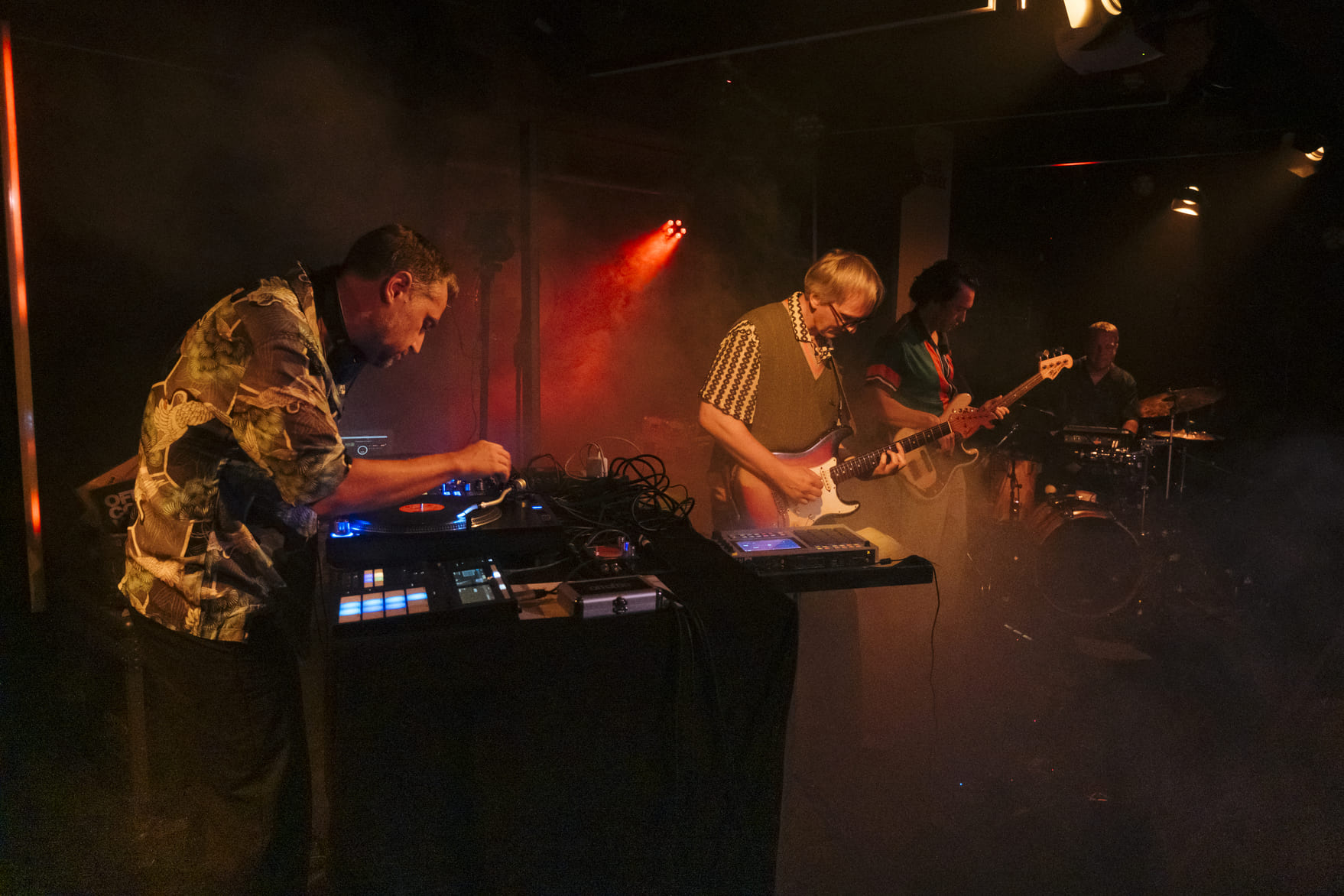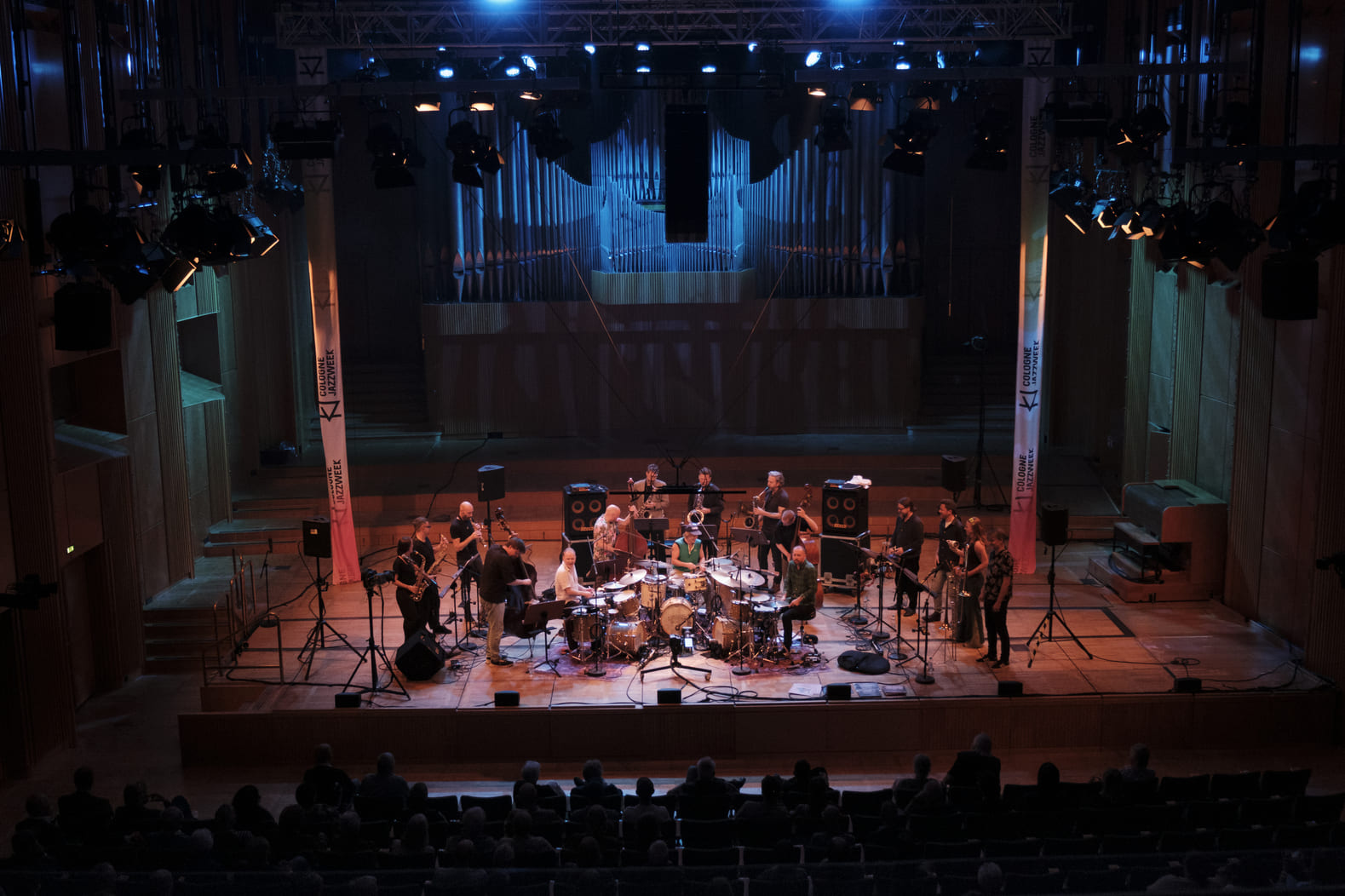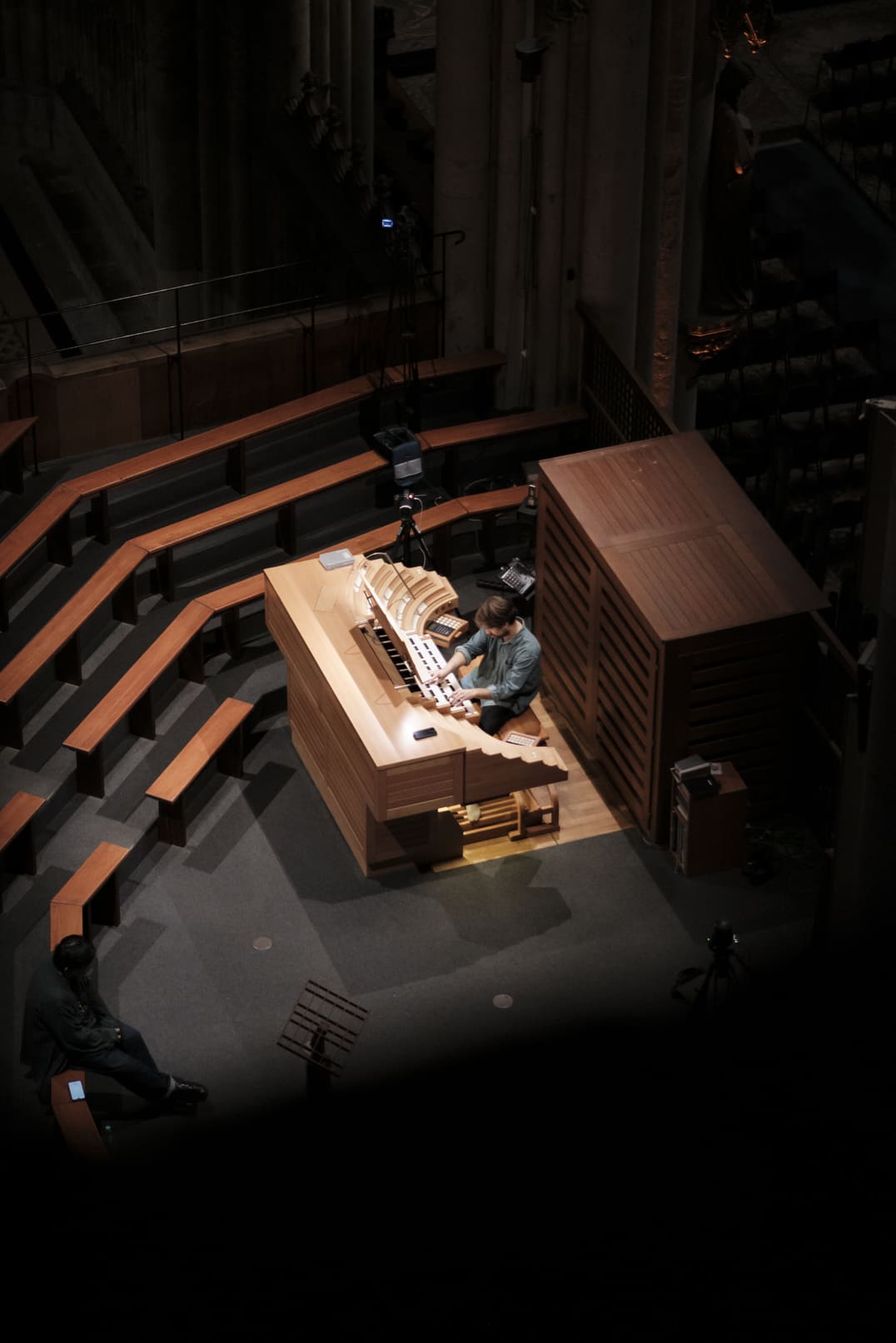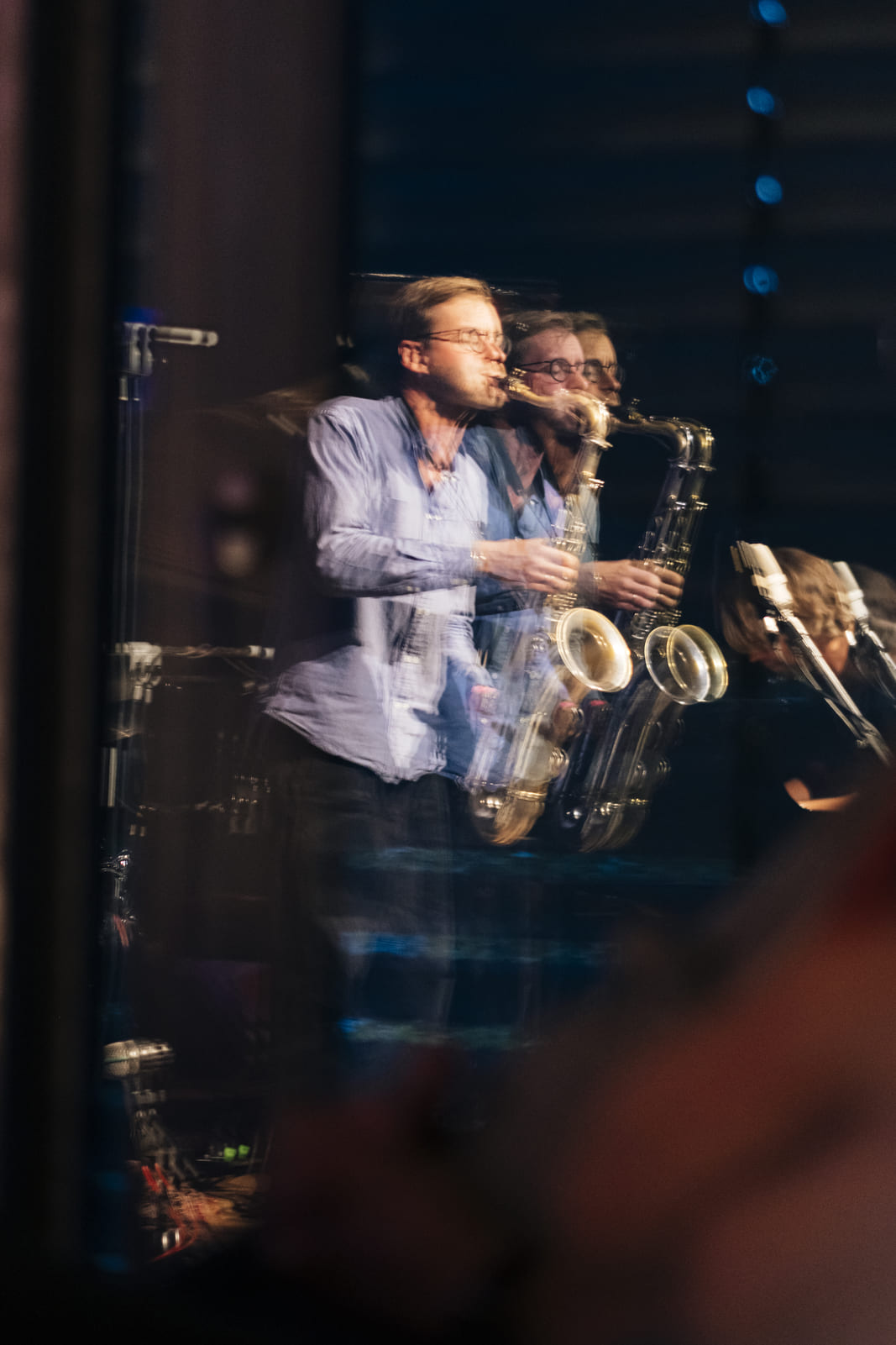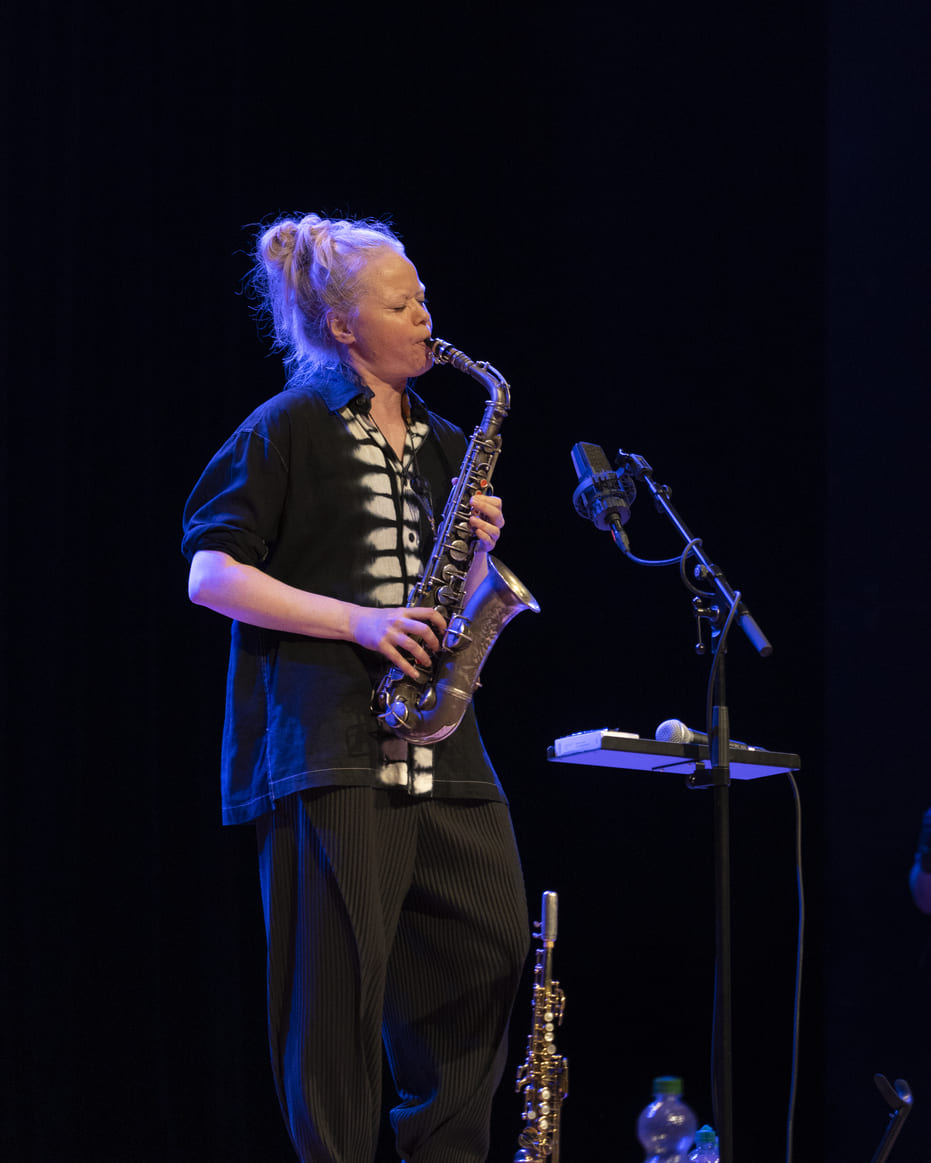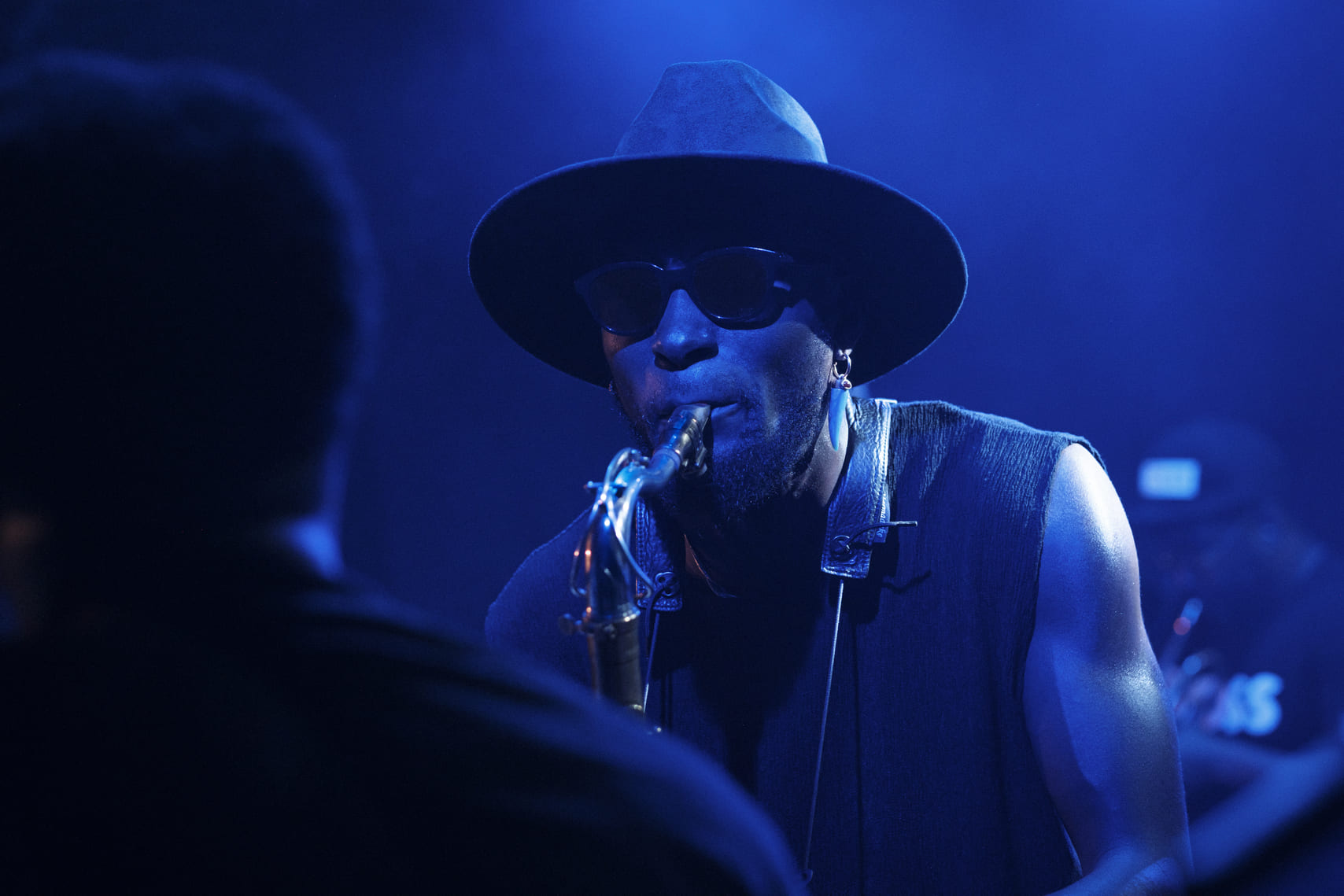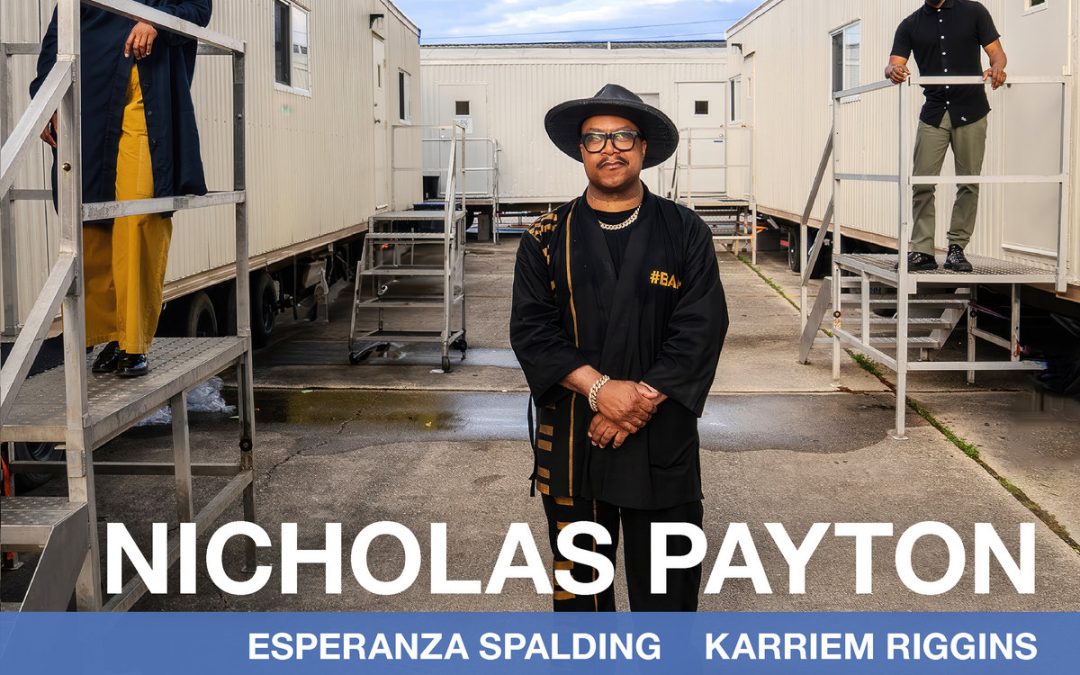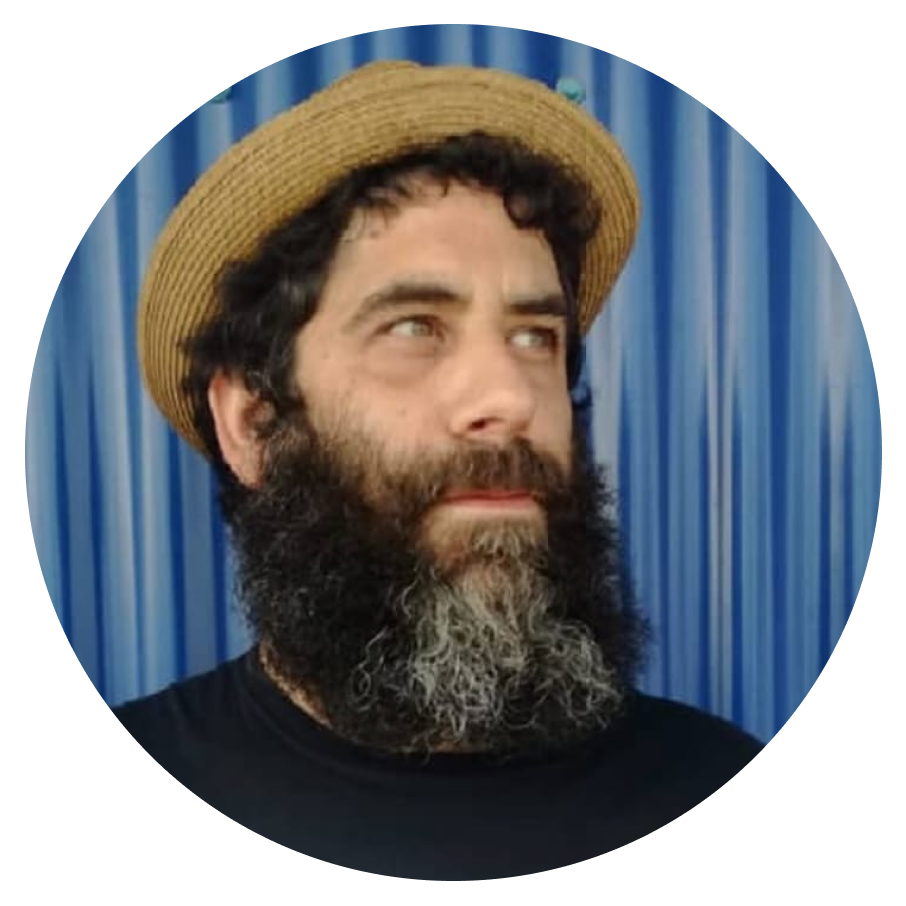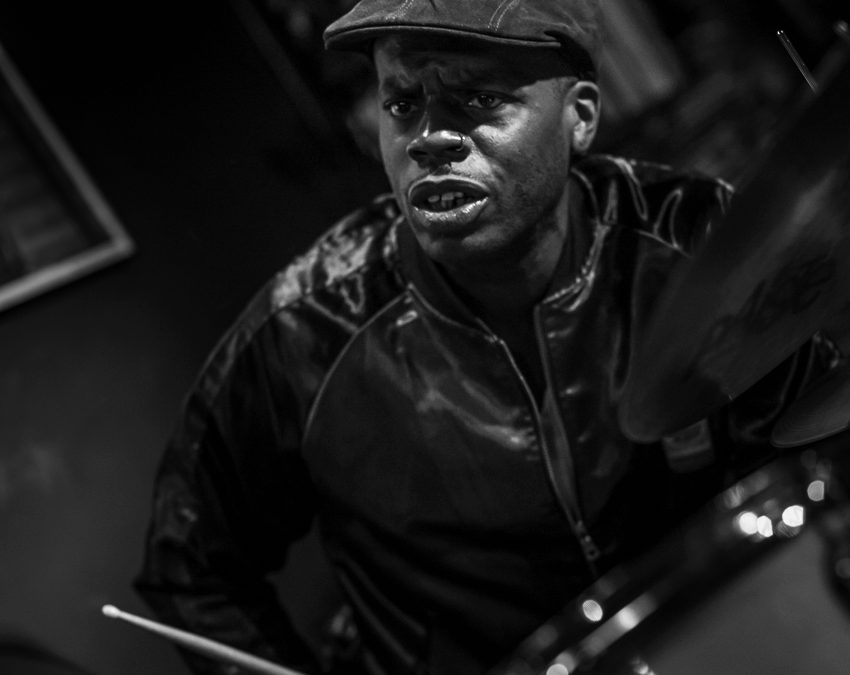
Gregory Hutchinson – Interview
GREGORY HUTCHINSON
Interview
2
October, 2025
Interview: Gregory Hutchinson, one of the greatests drummers
Text: José Cabello
Photos: Antonio Porcar Cano
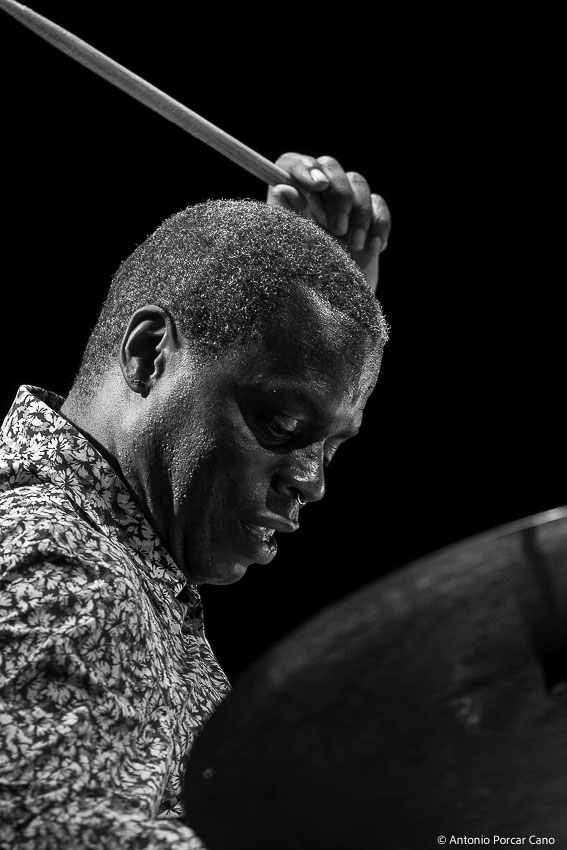
During our time in Burghausen, we had the rare privilege of engaging in several conversations with one of jazz’s great icons: Gregory Hutchinson. What started as a casual morning coffee that seamlessly turned into an afternoon beer unfolded into a wide-ranging dialogue on music, life, politics, and the pressing social challenges of 2025. Few artists embody the spirit of jazz both on and off the stage as Hutchinson does, and his reflections revealed not only a masterful musician but also a keen observer of the world around him.
In the course of our conversations, Hutchinson also offered us a glimpse into his forthcoming project with Warner Music: Kind of Now, a tribute to the timeless Miles Davis and a clever play on words that recalls the iconic 1959 album Kind of Blue while highlighting the positive value of reinterpreting Davis’s music in today’s context. The album boasts an extraordinary lineup —Ambrose Akinmusire, Gerald Clayton, Ron Blake, Emmanuel Michael, Joe Sanders, and Jakob Bro— a roster that is already shaping today’s jazz landscape. With such a constellation of talent, the work promises to be one of the most anticipated releases of the year.
We invite you to discover more through our interview—an encounter that was as insightful as it was inspiring.
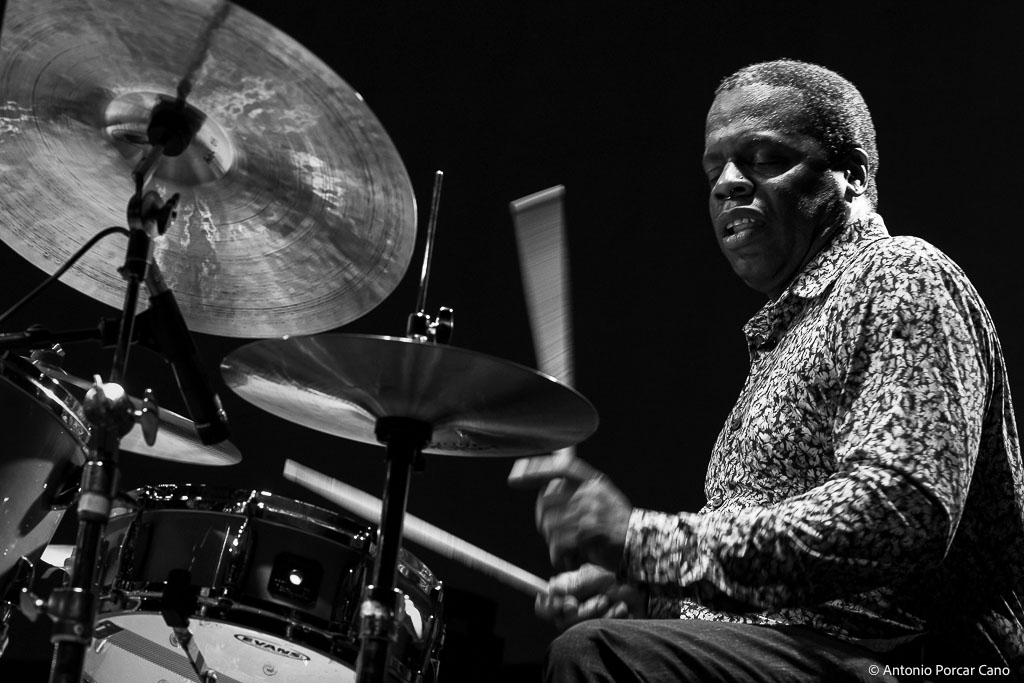
Listen to the PODCAST below
Gregory Hutchinson: What do you want to talk about today man?
In&OutJazz: I’m really thankful to have the opportunity to come over to just hang a little bit with you man…
You didn’t play last night, did you?
I didn’t man, I was feeling kind of tired…
I got you, I got you!
You know, my plane landed at around 9:30pm in Munich.
Oh! I see!
And then I drove all the way here like super-fast.
Wow, okay, I got you. So just came yesterday okay.
Yeah, yeah.
But tonight…, Let’s go!!
But yeah, I liked it very much, I could feel like the vibes and… The venue is very pretty.
Very nice man and a lot of students.
It sound sounds great!
Yeah, sound’s actually surprisingly great, yeah.
How did you feel the sound on the stage, on the bandstand?
It’s weird, because on stage it sounds one way and in the audience it sounds a different way. So on the on the bandstand, it makes you understand that you have to have these…, you have to be subtle at how you do things. So it was interesting when I saw my friends playing and I wasn’t playing, I could hear it and I knew I had to understand the room. Cause it got louder in the audience and I wanted to adapt to the acoustics of the venue…, but that’s experience.
As far as I can say it was and sounded beautiful.
Yeah, it was nice, very good time last night. More fun tonight.
So, man, In&OutJazz is surely honored to have you today. We’ve had busy months lately, and that’s good cause it means music’s still going around.
That’s good, that’s great. Are you producing festivals in Spain?
We wish so! It’ll come! For now, we’re just covering as a journal for the press.
Okay, I got you.
In fact yeah one of my main focuses during this year is that I’ve been trying to show to other festivals and other institutions in Europe how a lot of young musicians back there in Spain are really killing it.
Of course, yeah.
A bunch of them are in their 30s and they’re actually doing great stuff man.
So, they just need a chance, just need an opportunity to get out there. This is about opportunity for young people and it’s interesting when you go to Spain, when you go to all these different places, every place has a scene right. But the interesting thing that I sometimes find is like… Do these scenes connect? Do these people know about the people in Germany? Do they know about the people in France? That’s how it should be, and I mean, at a certain level it exists, but on the top level… The top guys, they know each other of course because they work with each other. But the level that’s right under that one and the beginning level…, that’s where there has to be the connection. That’s the only way it’s gonna work.
Yep. It’s interesting how you were saying you still have a lot to learn…
Oh yeah, come on man. Every day I watch a video of Tony or Elvin and I’m like “yeah, I still have to work hard”.
There are other cats from which one can learn, right.
No one’s going to be them, and it’s great. I wouldn’t want to hear another person sounding exactly like them. But they’re the people that we look to, that were our influences. But the point is, then, what do you do from there? How do you grow? How do you change? How do you recreate, develop and not become a copy of them? I don’t want to be a copy when I die, I don’t want them to say “oh yeah Greg sounded like so-and-so”. No, those are influences but you got to come up with your own sound and so that’s going to take a lifetime, that’s not going to happen… I’m 55, I’ve been trying to find that shit forever man. And sometimes I have periods where I’m like “okay, yeah, wow”. And then one day you wake up and you hit the drum and go “oh, shit here we go again”. So it’s always up and down, but I think that’s the beautiful challenge. Even though it’s up and down, how do you maintain the consistency?
There you go! I was about to ask you how do you find the balance between spiritual and human experience on one side and then the actual practice on the instrument on the other.
Some people are religious, some people aren’t. Some people are spiritual and some people aren’t. But, think about what you’re doing, you’re playing an instrument and you’re affecting people’s souls and when they come to see you… Watch it! You should do this sometimes: look at people when they come in and look at when they leave. There should be a definite change. It doesn’t have to be drastic, but it should be like a real feeling. For those moments that they’re listening to you for that hour and a half or whatever it is, they get to release…
Yeah, you should make a change…
Yeah, a change. Now the point is, when you do that, you’re absorbing all of their energies so if your music is not cool, if you’re not content or if you don’t have a purpose for what you’re doing, it’s… You can’t really do it! And it’s clear, so it might be that that’s what you have to do so there’s no disconnect. And when there is a disconnect, I feel it. For me like, when I’m not totally homed in, that doesn’t feel right. And I’m great because I’m so honest with myself. I’ll sit there and be like “this is fucked up”. But I won’t tell you, I won’t show you that because you don’t deserve to see that. You came to see me play.
I like how you’re realistic about it, because some people try to strengthen their technique or whatever, but they forget about life issues, and they don’t really find that connection. But, on the other side when something’s fucked up, when life is not really cheering but you still got to play that night…
You just said it, you just you just tapped into what it is. The point is this: we are entertainers so we gotta have a strong enough…, you gotta put that shit… It’s gonna come out in how you play, you can’t hide that. But you gotta realize the person coming to see you knows nothing about what your life is nor do they give a fuck…, they don’t. So, the point is, you gotta somehow overcome whatever you’re going through. And look, I played concerts and my mom died, I was on the road, my mom called me from the hospital, the doctors called me and told me my mom’s in the hospital and that she got stage 4 cancer. The doctor said “hey man, I’m gonna be real with you, it ain’t gonna happen”. And I knew it, I told her that this is how she was gonna die and that’s exactly how it happened. And I was in Europe, I was in London, so I flew back. And my mother was like “why’d you come back? You got work to do”. I was like, “I knew you’d say that so I came to be with you”. She’s like, “no, man, nope, you got work to do”. She’s like, “you want to do something for me? So, you need to keep doing what you’re doing. Cause if you don’t, that just gives you time to sit and think and ponder”. I said, “no, I won’t sit and think and ponder, we had this conversation about 20 years ago, so this is not, for me, this is not something that is a surprise. So no, I won’t sit and ponder. I will only wonder why the fuck you couldn’t stop smoking. And then I know the answer, because it’s an addiction”. Like, so with that said, we had a great life. There’s no need to feel sorry. And man, the moment when you’re born, in the next moment, the instant you come out, every moment after that is going towards the end. People don’t see it, people don’t get it. Like, they don’t understand.
Right, we can’t stand the idea of death, but it’s something as real as a having a beer.
So, to bring it back to your point, when you on that stage, your only obligation is to yourself and the people watching it…, and really more to them. We have a job, this is a job too. It’s a beautiful job, it’s the best one in the world, but you pay money to see me and you don’t want to see me sitting there all sad… That shit is not going to work.
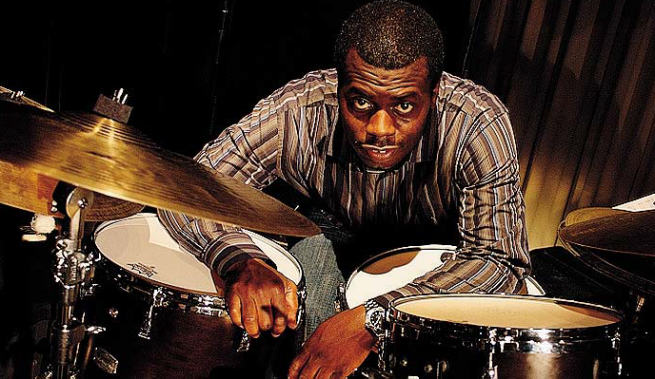
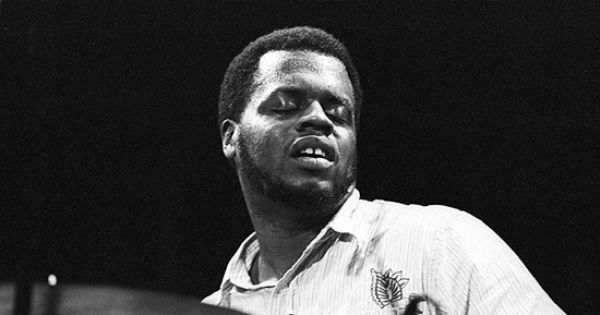
Right, gotcha. I don’t want to get too deep into this topic, but I wanted to ask you how you are feeling about all situation in the US.
Oh, that’s easy, man. It sucks, it’s so sad. We can live it in two ways. People, that’s what they chose people. That’s what they wanted, that’s what they voted for. So, everything that happens after that… If you put your finger in a socket, guess what’s going to happen. You’re going to get executed. Well, don’t put your finger in the socket. So they voted for it, now they gotta deal with the consequences. The only problem is he can affect so many things…, he can undo centuries and years of common respect for European and Americans. So, we got to wait three more years for him to leave and then repair all of that shit. I live in Italy and every day you see the shit on the news and every day there’s some bullshit to deal with, but that just makes me have more of a resolve and purpose. So, there is famous saying: “the revolution will not be televised, the revolution is here”. People are afraid to fight. I’m not afraid to die. I’m not at all. Like this music is one aspect of my life, but there’s a whole other side that you have no clue about who I really am. And the other side is the rebel, the other side is like “I’m going to fight for what I believe in”. If it means I die, then I die. But I have two daughters, so I need to fight for their freedom. So, if it means that this is what we got to do, then there’s what we got to do. And everyone has to be that way though.
I’d rather have people with strong principals than having people that go from one side to the other, without any reasons, flowing as the wind blows.
Well, we needed Bernie Sanders this time, but Bernie didn’t want to do it. Bernie Sanders would have been great. There’s a few people that would have been great. If it was going to be a Republican, I wish it would have been John McCain, but he died. So yeah, he was the one that everybody loved. The Democrats love John McCain and the Republicans love John McCain. And then Trump, the first time he got in office, he said “oh, he’s a loser because he got captured”. No, he surrendered himself with his troops, he wasn’t captured. He went to be with his men. That’s a real leader. Cowards, that’s all I can say. And unfortunately, we got white America, man. Because if you look at it, you look at all those people up there, maybe one or two black people, just maybe. White America. So, what do you want? That’s what we know it is, it’s always been that, it’s going to stay that way. But I think we got to fight. Because it will get to the point where it fucks with the music. He already took over the Kennedy Center, he fired everybody from the Kennedy Center. What is he doing with the Kennedy Center? They were having good jazz, everything there. What is he going to do? He just wants to show you that he’s the boss.
Makes sense. So anyways, how are you feeling in Burghausen?
Oh, that’s great, man. I’ve been coming here since early 90s, I know this whole area, I’ve stayed here so many times. So, it’s great, man.
Have you come every year?
Not every year, no. But we used to come quite a bit. I played here with Ray Brown, with Roy Hargrove, with Diane Reeves, with everybody.
Has it always been in the Jazzkeller?
No, no, no. In the theaters. I think we might have played at the Jazzkeller with Ray Brown and Benny Green, I’m not sure, I think so, maybe, I feel like we did. But no, we used to play in the theaters. Jazzkeller is nice though. It’s like taking me back to when I was like in my early 20s. Like usually I would never come and play being an opening band for a session. But it’s fun because I get to play and work my shit out the whole week.
Yeah, and it’s beautiful. I feel like that makes it a really powerful experience for the audience to actually go there and see you guys. It’s like a real lesson, it’s beautiful, I really appreciate it.
You know, Lawrence has got some great music. We haven’t played too much. This is my second time playing with this particular group with him.
He just put out his record, right?
Yeah.
His first record, To The Surface.
Yeah…, music is music, we interact with each other, we have a good time.
Amazing, man. How’s the weather looking? It’s great, right?
Today looks nice, man, yeah, today’s awesome weather, man.
You’ve been happy to play with this trio?
Oh man, these guys are fun, man. Lawrence is Lawrence, and we have a great time playing. The music is fun, the vibe is cool. So yeah, we’re having a good time tonight. Yeah, Yasushi is such a bad motherfucker. So, well, I’m in heaven, man. I just get to tip the line on shit.
It’s great. Yeah. You’re staying in Rome, right?
Yeah, I live in Rome, still in Rome, still in Rome.
Is it going to be a crazy year this year for the…
Jubilee, it’s already started, it’s already started. It’s getting… Full of people, though.
Full of people.
Full of fucking people, though. It’s really ridiculous, yeah. But you know what? That’s good, man. I mean…
And the Pope’s almost passing out, man.
We’ll see what happens with that. That’s different. Yeah, I don’t know. It changes the whole thing, it wouldn’t be so Jubilee. I think he’s a regular guy. I think he’ll be all right. He just takes, you know, he’s just a little older. He’s got to recover. Yeah, he just needs to rest, man. That’s hard, being the fucking Pope.
Yeah, it has a lot of responsibility.
That’s a lot of responsibility. Yeah, it’s not easy.
I feel like it’s actually, it’s like a huge burden, spiritual burden.
Of course. It’s got to be, it can’t be easy. But, you know, people look to that and they believe in that, what that is. And so the church, so, which does a lot.
His guide, yeah. Definitely. Yeah, it’s nice to actually, you know, when things are, you know, stumbling, it’s good to have a guy that says, hey, let’s do this. And maybe he’s mistaken, you know. It’s like in music. If no one gets takes the solo.
No, it’s like, what’s going on?
Yeah, there you go.
What’s happening?
Let’s leave.
Yeah, and I mean, the church is not perfect, but they do what they do. So that’s how I see it. Everything is, at the same time, you can believe, but you have to have your own fucking common sense too, like.
Oh, yeah, yeah.
You can’t read something and you have to understand how to interpret what you read. Yeah, not just tell someone telling you, okay, this is what it is. No, that’s the kind of the mistake with religion sometimes. People, they stop using their minds and they just say, “oh, this person is going to tell me what I should do with it”. No, you got to think for yourself also. Does that sound right to you? Does that work for you?
That’s right. So, are you studying or learning anything lately?
I’m studying and learning… Wow, that’s interesting.
I mean, I guess, plenty of repertoire, right?
Yeah, no, I just practice. I just kind of…
Like how’s your, like your daily or however it is, routine?
I’m online teaching most of the days. But then I have time to practice, so I practice.
How do you practice? Do you just go and improvise and stuff?
No, I have, it’s always a routine. You don’t get better, you don’t get good if you just go and just do shit. No, you got to have a focus on what you’re trying to learn and what you’re trying to get down. So, every day is geared on something when I’m trying to go towards. And then I take periods where I just, I don’t touch the drums until I have to play. Cause I just want to think about what I’m trying to pin down.
You got to be fresh.
Yeah, yeah. So, when you get to a certain point, you understand what you need to do. Like, you know, you’re 20s, it’s the “I” period of playing music. And younger than that too. And then later on it becomes the “we” period. So, you understand what you need to do to get better.
Oh yeah. Is it great to be in the European scene? Do you like it? Or did you miss the American one…
No, I like the European scene, this is super cool. I go out and I play with people that I really like. So, there’s some European guys that I play with a lot. And then a lot of times I just stay and I work with the guys I know that I like to play with. But the European scene is great though. So many challenging musicians everywhere, in France and Germany, all over. So, it’s nice to meet them and experience them and get a chance to play with them.
Totally. I was, uh, wondering if, if you were, uh, writing any music. Are you?
Always! Next record I’m doing though is a tribute to Miles Davis.
Oh, shit.
Um, from a drummer’s perspective. So, we’re going to do that.
How much of his whole career are you covering? The whole shit?
From the beginning to electric stuff, stopping at like, probably stopping at the Tutu period, you know?
Yeah, yeah.
Everything before, like On the Corner, that whole period, which leads to that. So yeah, we’re going to do it all. So, I’m excited about that because it’s different.
Are you making a lot of arrangements to that?
Yeah. And playing very rare tunes that people don’t usually play.
Nice. Trying to rescue some of the, uh, good material by Miles, right?
Oh, yeah. I think people know it. They just, they just don’t really play it that much, you know? So, I think if you have a new and fresh perspective on it, it’ll make it fun. I mean, of course we can’t, I can’t recreate Tony, I can’t recreate Jack, I can’t recreate Philly or Jimmy Cobb, but we have a different, a different way on, a different view on how to do it. So that’s the next thing for Warner. We’re going to do that in June.
Recording, you mean?
Yeah, and I have the record already out on Warner Music called The Bang. So that’s already out, which is a different kind of record altogether.
Yeah.
And then we just keep moving, man. Like, you got to keep evolving.
Oh, yeah.
We’ll see what’s next. You know, younger cats are up playing now. So, it keeps me fresh in all my toes. Like, okay, you know, I can look to my young friends playing the instrument and be inspired. I think that’s the number one, you know, the inspiration.
Yeah, that’s one of the things I’ve always been thankful for in the jazz world. Whatever that word means, you know?
Yeah, exactly.
But, you know, I feel like it’s something real pretty to feel like everyone looks after the other, you know?
Oh, yeah.
No matter the age.
That’s how the music was built, you know?
Exactly.
No matter the age or the race.
It’s, you know, it’s a community experience. And I feel like nowadays, you see the world all screwed up.
Oh, yeah, jazz is different, we’re still good here.
There you go. I feel like this kind of community experience, this kind of relationships with each other are saving the world.
Oh, yeah. If more people were like us, everything would be cool. It’s that simple, right? Think about it. If the world was more like jazz musicians, it would be so cool, man. Like, we don’t stress on those kind of things. We just try to play the right changes on the right tune. That’s our big right. Imagine if that was the stress of the world. Oh man!
That’s funny.
What were my changes on this tune… hahaha
I remember asking one of the, maybe you know him, it’s an older drummer from Spain. He’s called Mark Miralta.
Older. It’s funny you say that. Yeah, he was my student for a while.
And he is, I remember talking to him and he was like, I asked him, “do you ever feel, you know, nervous or stressed on stage?” And he was like, “yo, it’s when I’m off the stage when I feel stressed and nervous is, you know, you got to be worried about, the car rental, the apartment, everything else, and on the stage, he said, that’s where I feel free”.
He’s right. That’s one place where the other shit doesn’t exist. We go to stage, and it’s like, oh, finally, like the day is like, all the other shit that we got to deal with all day finally. Oh, God. Yes. Thank you. That’s how I see it. The same way. Exactly. When we hit the stage, it’s peaceful.
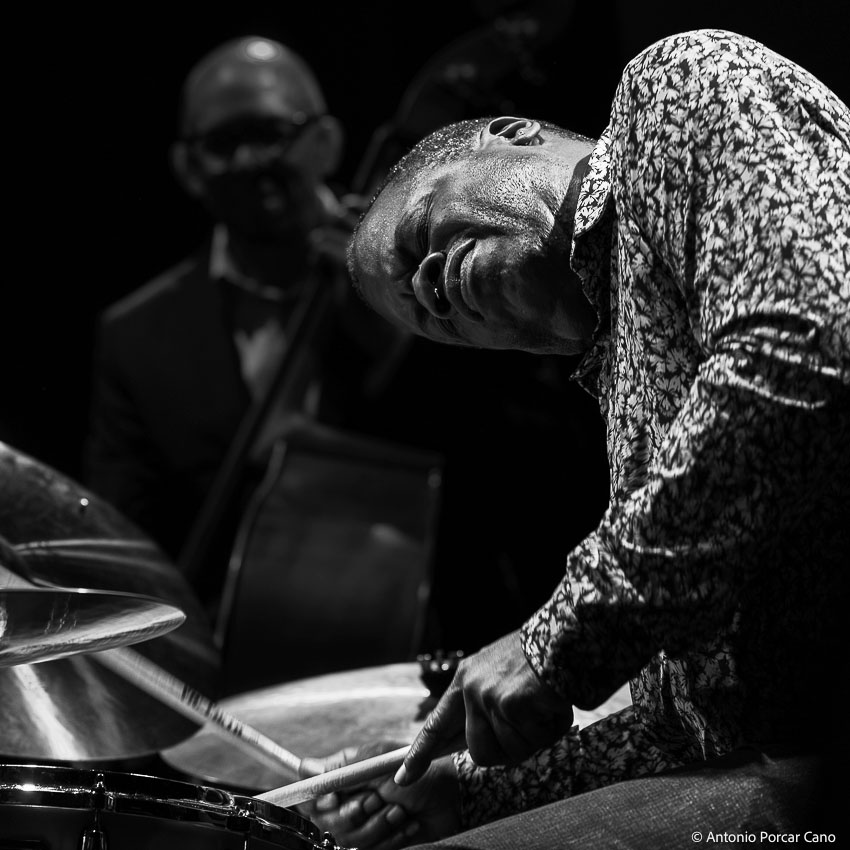
Have you ever had a love and hate relationship with the stage or has it always been loving?
I love it. The stage is where you prove yourself. You can practice in the room all day. That doesn’t mean anything. When the people in front of you and the lights come on, what do you do then? And it’s where it really counts, you know. So, I love it. I love the stage. That’s the best part of the day. He’s right. Everything else is like leading up to that, like, fuck, just give me, excuse me, just give me to the stage, man. I don’t talk to people. I just want to go play. In those moments that you’re sitting there with other people on stage doing what you love, nothing beats that. Nothing beats that.
That’s great, man.
That’s the best, the best thing, you know.
I got to confess. I remember. When I was back in school, I remember one of the first videos I saw in YouTube, in order to actually master the brush technique was you, man.
Oh, man.
There’s a whole master class where you are teaching brushes.
I would send you back. I would send you to Clayton Cameron, Philly Joe, Kenny Washington.
Oh, yeah, Clayton Cameron, man.
I’m good, but those guys are masters. If you want to really get it, the Papa Joe, actually. Oh. That would be my first answer. Oh, go listen to Papa Joe because that’s a brush master.
It’s beautiful how you can follow the line and you get to the really beginnings, you know, of this music.
I think you have to.
That’s one of the best, uh, feelings of, of this music. The tradition is really, uh, uh, good and, and well-treated value, you know, whereas in other areas…
Well, think about it. If you want to become a doctor, you have to study case history. You have to, if you want to become a lawyer, you have to know the law, case history. So, we’re no different. You have to know what came before, what set the precedent for you to do what you do now. So, yeah, it’s, it’s really like, it’s comparable to everything else that happens in the world. You have to know the history of what you’re trying to do. You can’t just come into it “okay, I’ll do it”. No, it doesn’t work that way. Well, also sound is sound. You sound like you’ve only listened to one period. So yeah, I think that you got to study this whole thing. Listening to the music is just as important as playing.
Oh yeah, totally.
So, if you don’t know any tools or you don’t know the vocabulary, how the fuck are you going to play? You can’t play.
In fact, I would say, I mean, of course it’s, it’s fun to play, but when you find yourself having fun listening, that’s one of the best experiences, you know, as a musician.
You just enjoy it as a fan.
Yeah. I mean, you’re a musician and stuff, but, but when you really have time and take time to listen to a record from the beginning to the end…
Which a lot of people don’t do it anymore.
You know, try to focus on the music. Just as when, when you read a book, you know, you cannot be, you know, chatting on iMessage or whatever while you read a book.
No, you read the book. Exactly. Same thing. Focus, focus and discipline.
Yeah.
You want to be a great musician, you need those two things. You don’t have that, you’re lost.
Does the word contemplation resonate with you?
Not really. Why?
I feel like it’s a word that may define that experience of actually paying attention to something with a will of capturing its essence, you know, contemplation. It’s like when you go up a hill or up a mountain and you try to contemplate the whole landscape.
Yeah.
You’re trying to, you’re trying to go deep, further beyond the “oh, this is pretty”, you know.
Yeah, yeah.
Trying to actually like capture the essence, right?
Yeah
I feel like we need more contemplation and, and, and the, and nowadays, you know, because people are used to, you know, 15 second reels, you know.
Yeah, they, they’re attention span is so short, man. It’s like people…, they want it now and that’s it.
And also weakens the memorizing muscle, you know?
Yeah. If you just, like I said, if you don’t think about it in terms of work and you just listen as a fan, you get all of that stuff. When you listen to something or when you do something because you really love to do it, you get better at it. When you do it only because you think you need to do it to get better. No. Two different things.
Right.
Enjoying listening to music and learning. But just listening is awesome. Listening to music and saying, “oh, I gotta learn these tools”. You’ll never, you’ll never be, never be good because the mindset is wrong. You’re not a fan. You’re a student still. And as a student, but not a student the same way I’m like, there’s different levels of being a student. You’re a student on the level of, you’re still trying to understand what’s going on as opposed to like, okay, I love what I’m listening, what I’ve been hearing. And so, yeah, I’m really engulfed in it. Like, I really understand this language. And your whole, your whole way of thinking changes once you do that. It really does.
Yeah. Interesting. Interesting. I feel like I’m very thankful for, for everything you said, man.
Oh no, man.
It’s great. I don’t want to steal more time from you, man.
No, it’s all good, man. I’m glad I can help you, brother.
I’d like to, to hand you out last question, maybe. And I’ll let you be calm and sweet. Um, it’s a real fast question. I’d like to know four different recommendations from you. Food, type of food that you like.
Um, well, since I live in Italy now, I don’t eat a lot of pasta. Fish, trying to stay away from fried foods so much. But fish, um.
That’s a thing now.
Yeah. I mean, I eat some beef and some chicken. I don’t eat pork. I just need to stop drinking so much. That’s my only problem. So, after that, but it’s difficult when you’re on the road because you have to eat what’s really where you are in the future.
Yeah.
So yeah, you gotta adapt, but I don’t eat pork anywhere. So that’s the only thing that I need to, you know, fix.
Nice. What would a book recommendation be? If there’s any.
Oh, there’s a great book about the psychology of drumming. Oh, beautiful. You should get that. I’ll send you a link to it. Yeah, sure. You can get it on Amazon. It’s great. So that would be one: The Psychology of Drumming.
Awesome. What about a movie?
Movie or TV series? The TV series I’ve been watching is Severance and White Lotus. So Severance is really good. If you watch this, it’ll really.
Yeah, it develops your mind?
Really develop. Yeah. It’s really about the two sides that we all have now in our soul. Our innie and our outie. Greatly done by Ben Stiller. He was a great comedian. But this series is so killing. And it’s the final of the second season. That’s just amazing. So, you got to go back. It’s on Apple TV. Go watch it. It’s really, it’ll change the way you think about a lot of shit. Yeah.
That’s nice. Nice bet. Yeah. And at last, what would a record recommendation be?
Oh, that’s a hard one.
It can be you in it or not.
Not me. Well, a record, a recommendation of albums. I mean, you could, I would say coming from a drummer standpoint or if it was coming from a drummer standpoint, I say, you know, Art Blakey, Caravan, of course, Roy Haynes, Out of the Afternoon, Papa Joe Jones, The Trio Records, Philly Joe, any record, Sony’s records, solo records. And then the stuff with the Quintet, of courde. Max Roach, everything, Deeds, Not Words. And then, yeah. I mean, Kenny Clark was like, from a drummer standpoint, you got to go through the history. Sid Catlett, Baby Dodds, Chick Webb, Gene Krupa, Buddy Rich. Everybody, you know. And only when you finish that will you arrive at who you want to be. That’s the only way. That’s the only way. And so, that’s why I still keep doing what I’m doing because I’m still trying to arrive at, okay, what the fuck am I doing, you know.
And it’s cool. Like, it gives hope to people that come after you, you know.
Oh, man. We have to because the music needs us. The music is bigger than all of us. So, the music needs to survive. So, I was fortunate to have good people who taught me. If I don’t pass that on, then that’s really a bad thing. So, I need to do the same thing, you know. So, that’s what we do. That’s why we sit here and talk. That’s what we do. We pass it on. And make sure everyone…
Can hear about it at least.
And then in your own time, you’ll come to your own understanding and love of it. I can’t make you have that. Only thing I can do is open the door. After that, you got to take that torch and then you got to do it for somebody else.
There you go.
That’s it. This is what’s the movie called? Was Pass It Forward? Pay it forward. Pay it forward. That’s all we do. That’s what music is. We just keep paying it forward to the next generation, to the next generation, next generation, next generation, next generation. That’s it.
Well, thank you.
Thank you, man.
It’s been a pleasure, man. I’ll see you tonight again, I guess.
For sure, man, I got your beer, don’t worry about it, man. It’s on me.
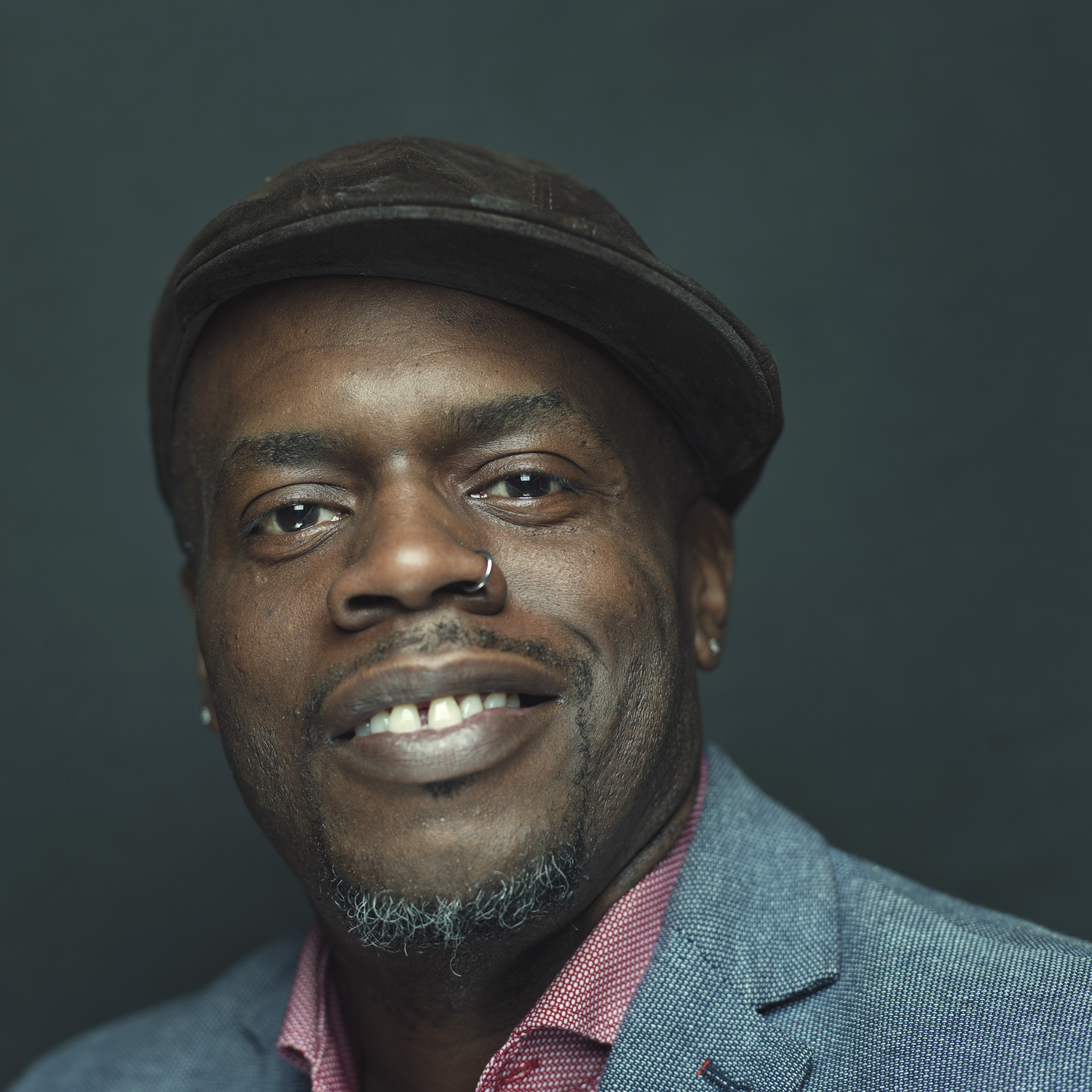

By José Cabello
October 2nd, 2025

